SOS Chrétiens d’Orient offers the possibility of carrying out a short or long term humanitarian mission in the Middle East.
Throughout the year, hundreds of volunteers take turns to live an extraordinary experience with the Christians of the East.
Since its creation, SOS Chrétiens d’Orient has made its mark in the voluntary sector by sending more than 2,200 French and foreign volunteers to the Middle East.
These young people in search of the truth have come to serve the most destitute, have seen their distress and have returned transformed, witnessing a reality that has surpassed their dreams. What is essential is invisible to the eyes, one can only see well with the heart. They left their families, their lives, their comforts for the adventure and the unknown in countries at war or in situations of instability.
They found families who held out their arms to them, mothers with whom they cried, fathers with whom they rebuilt their homes, grandfathers with whom they played chess, children with whom they played in the rubbish. They all came with their human qualities and professional skills, they came back with an even greater treasure: knowledge. They left as servants, they came back as witnesses.
Some have continued their studies, others have changed their career path, all have understood that their volunteering experience is not just another line on a CV; understood that in the Middle East, no matter what your level of study or religion, war hits everyone without distinction.
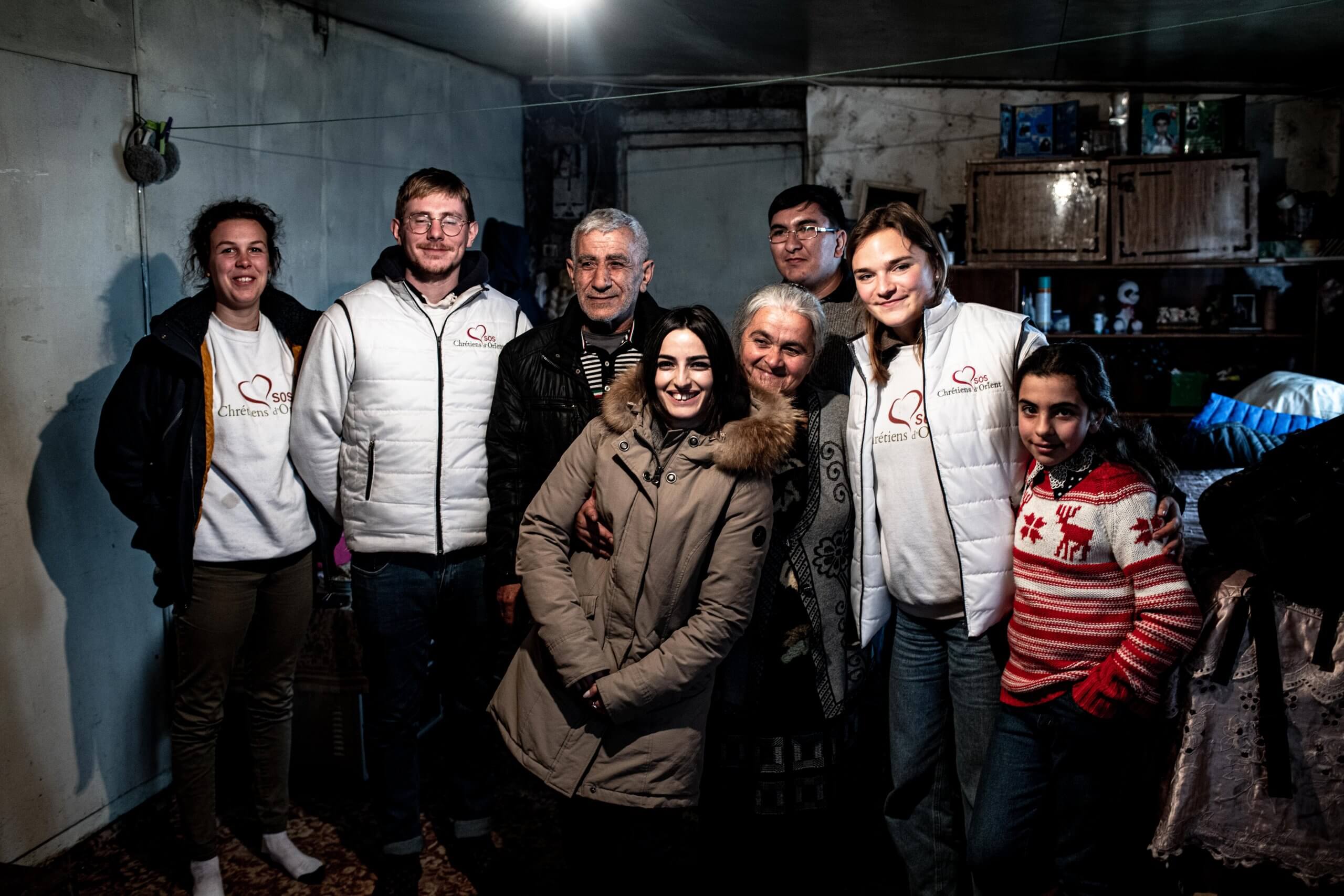
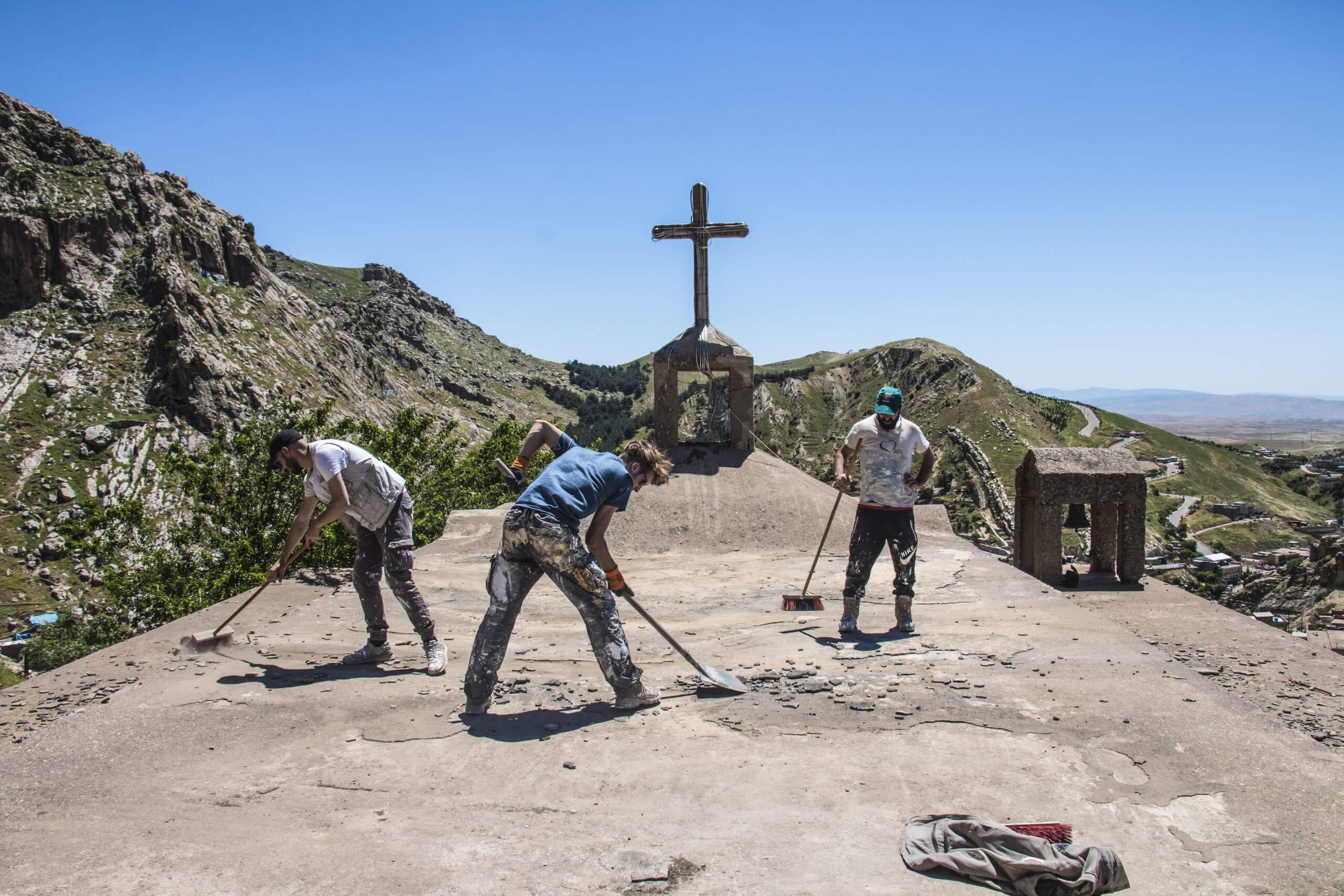
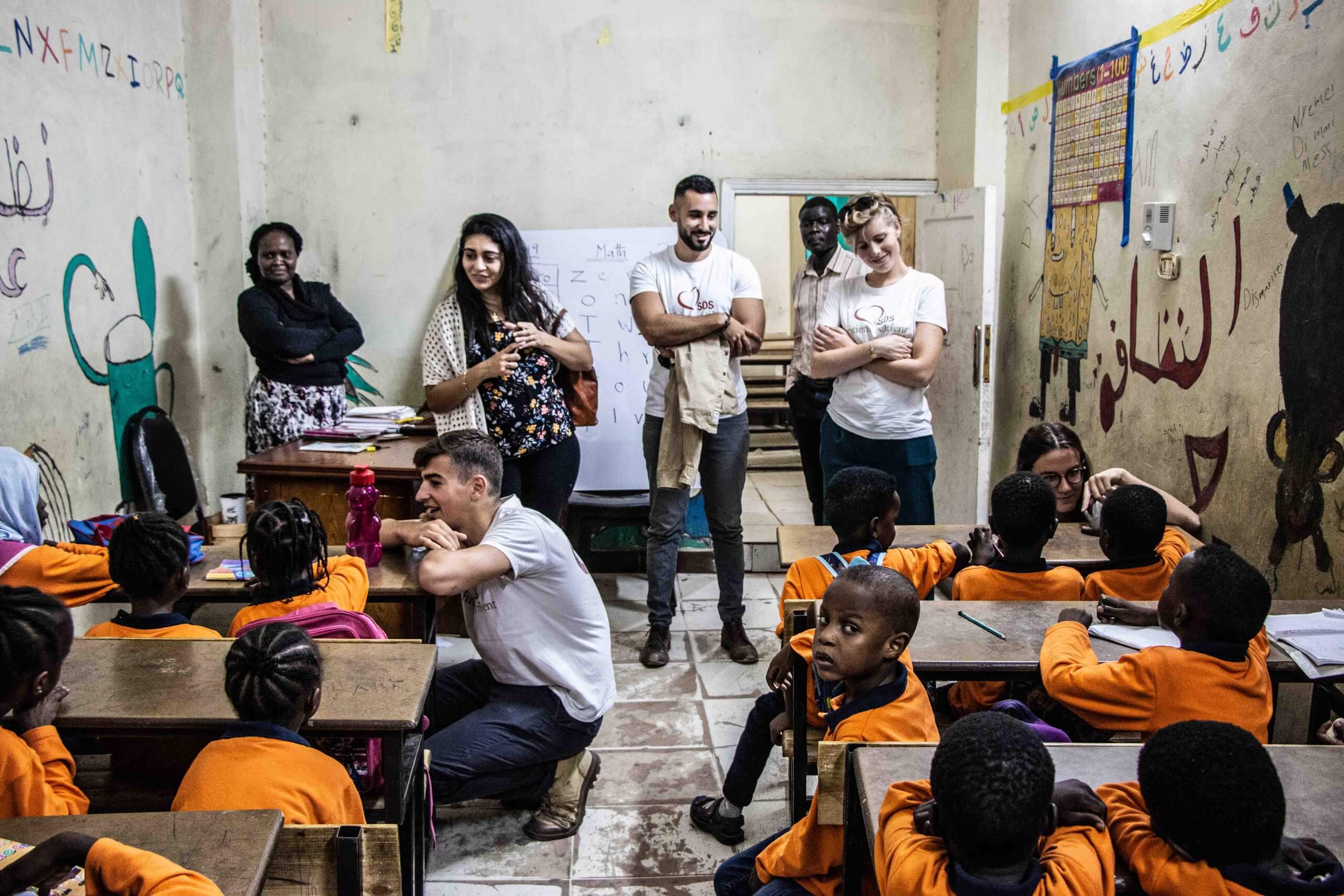
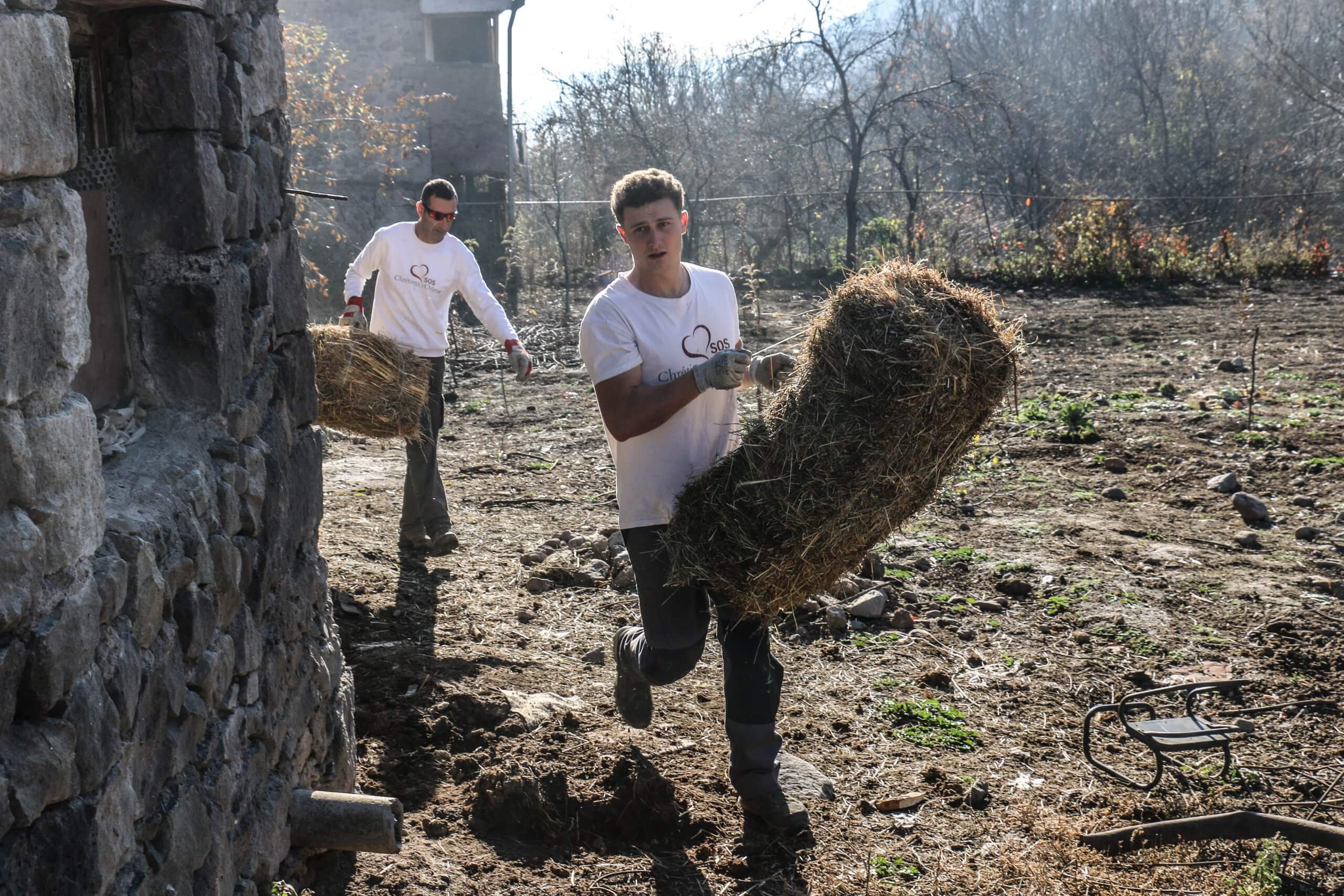
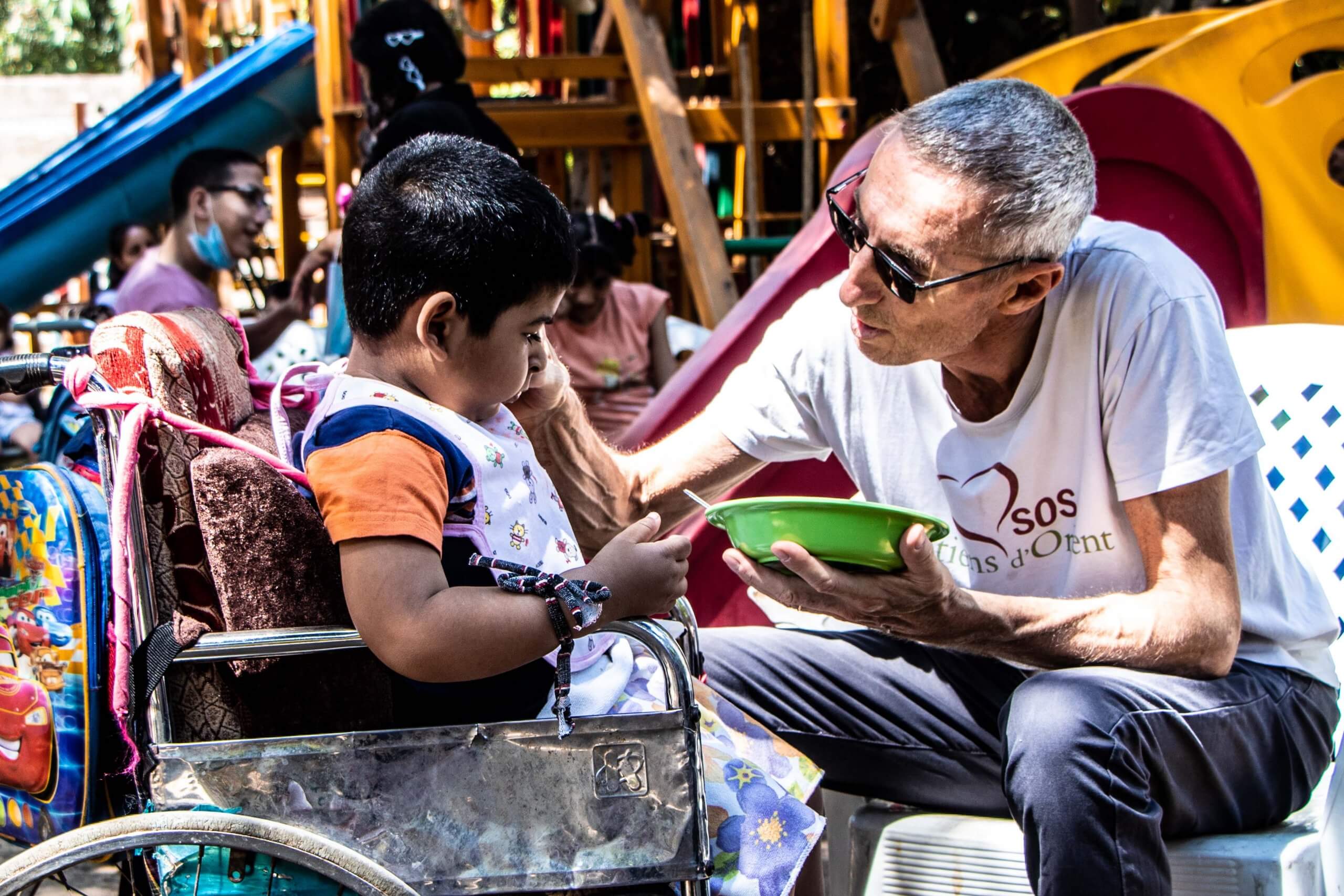
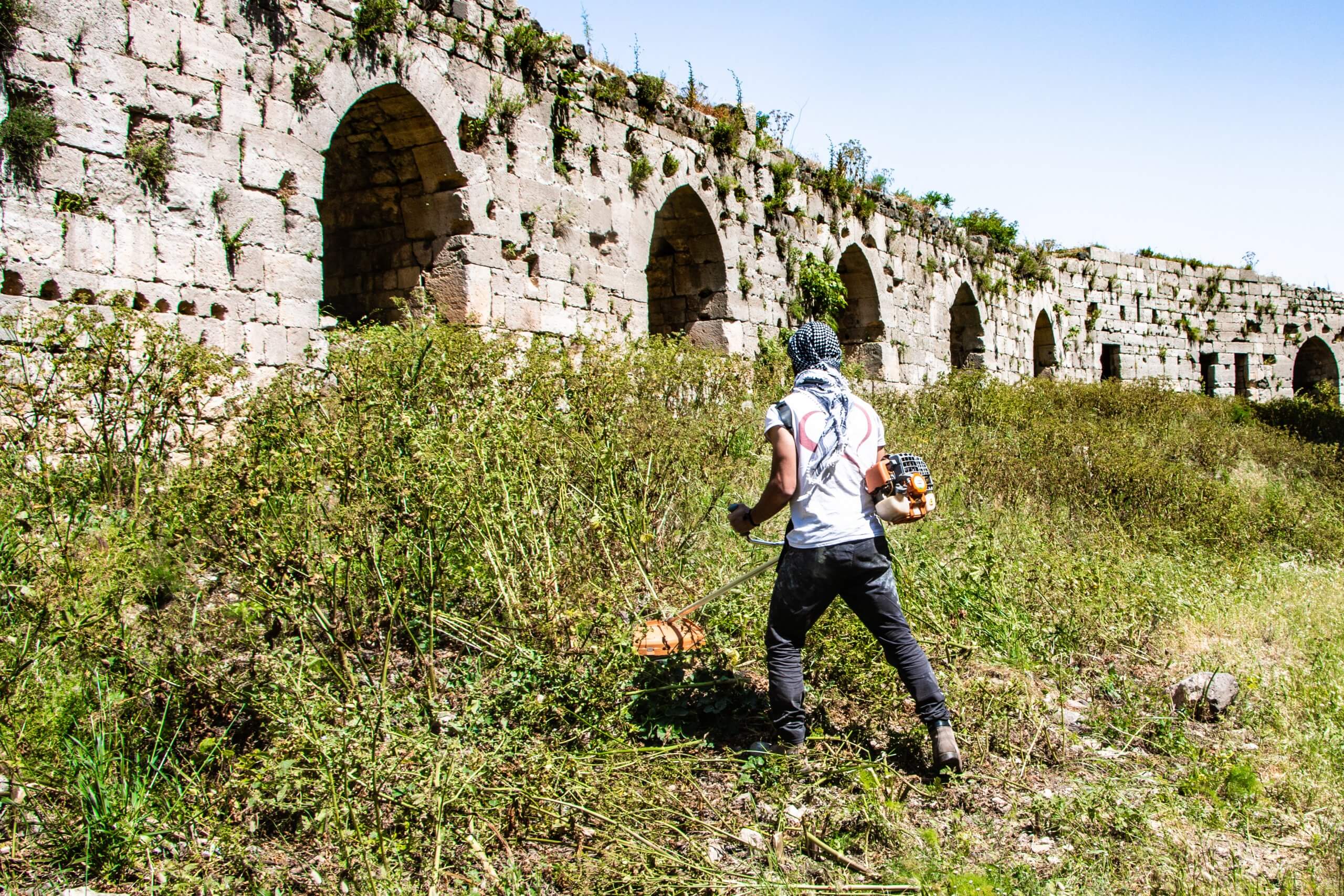
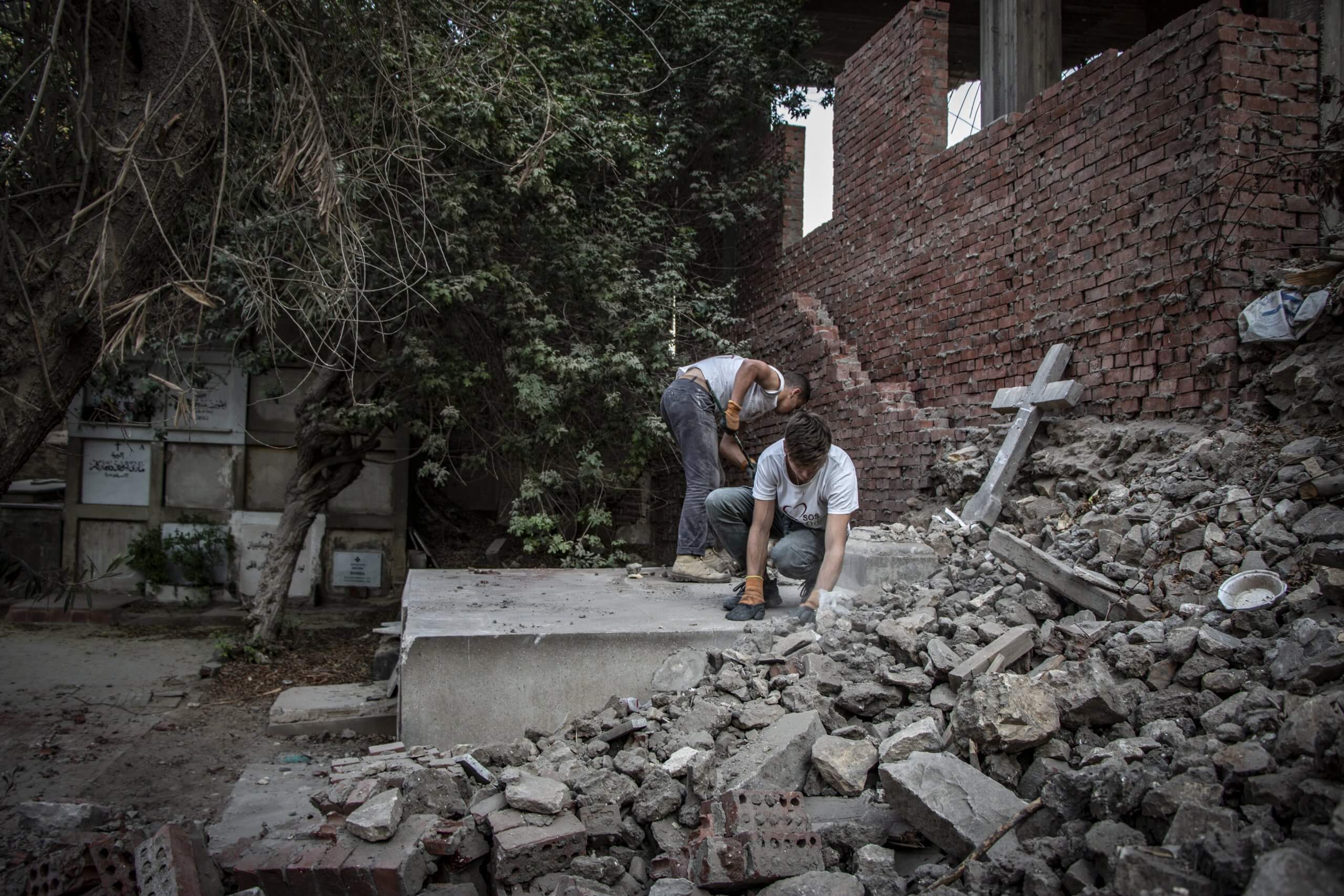
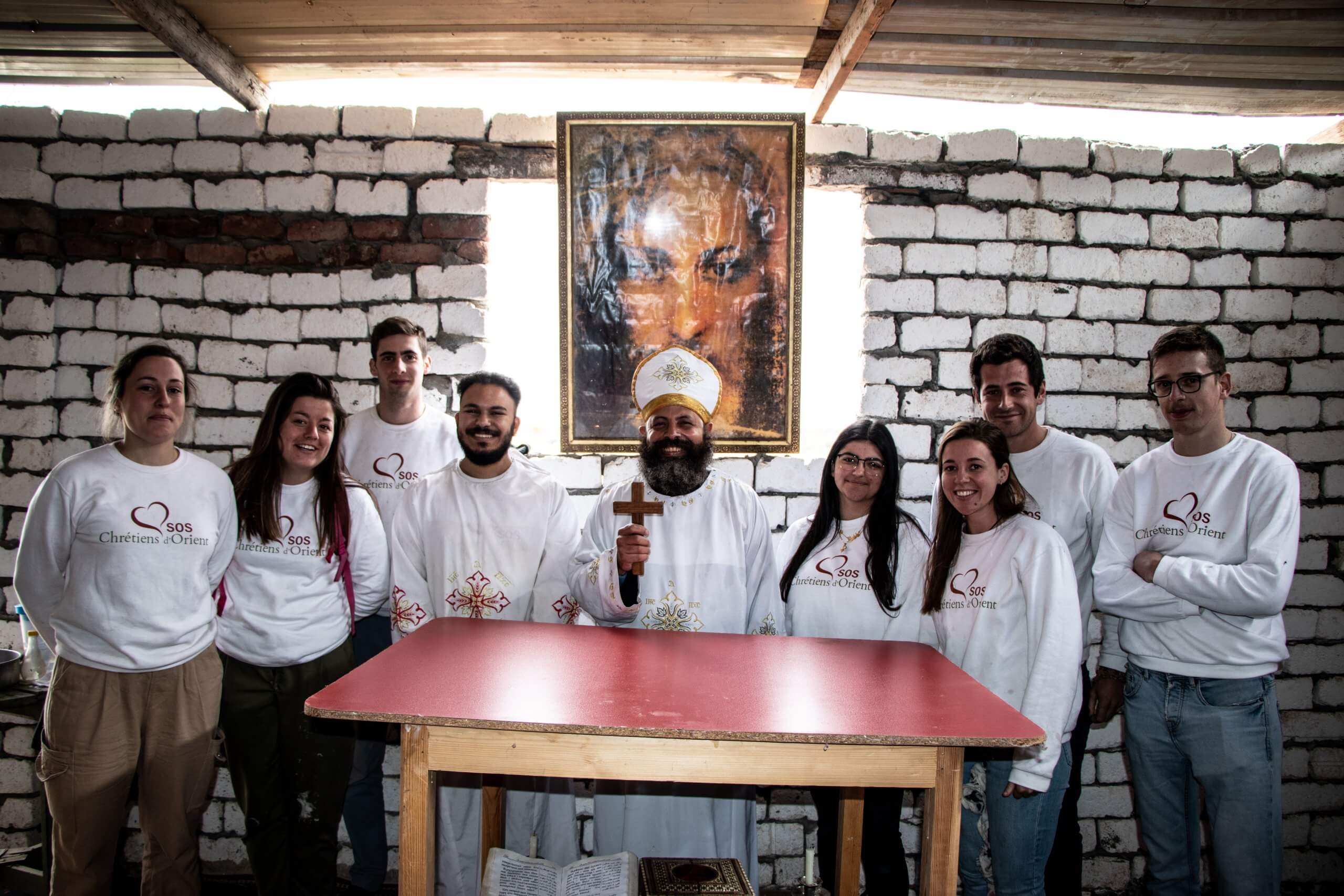
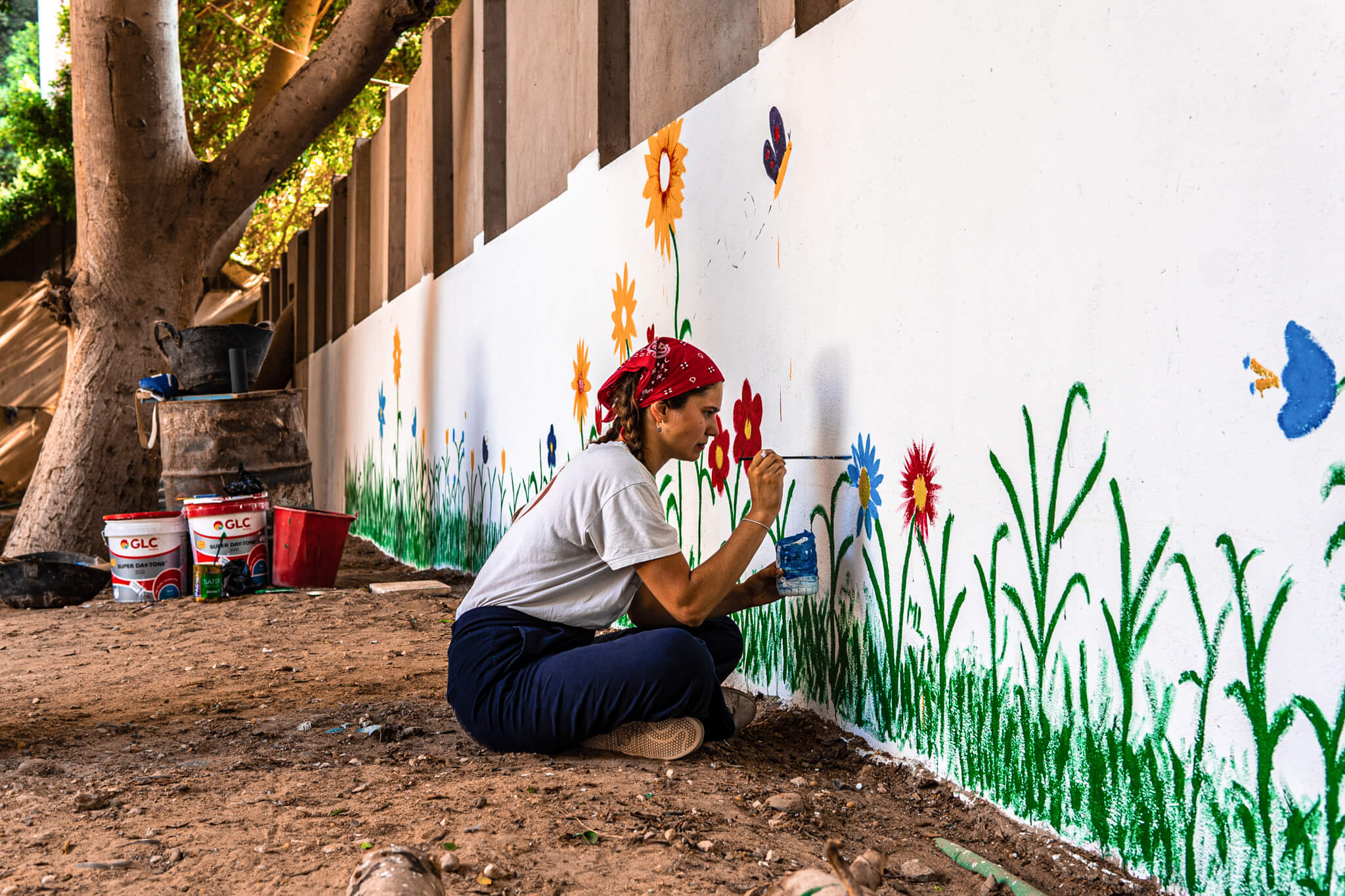
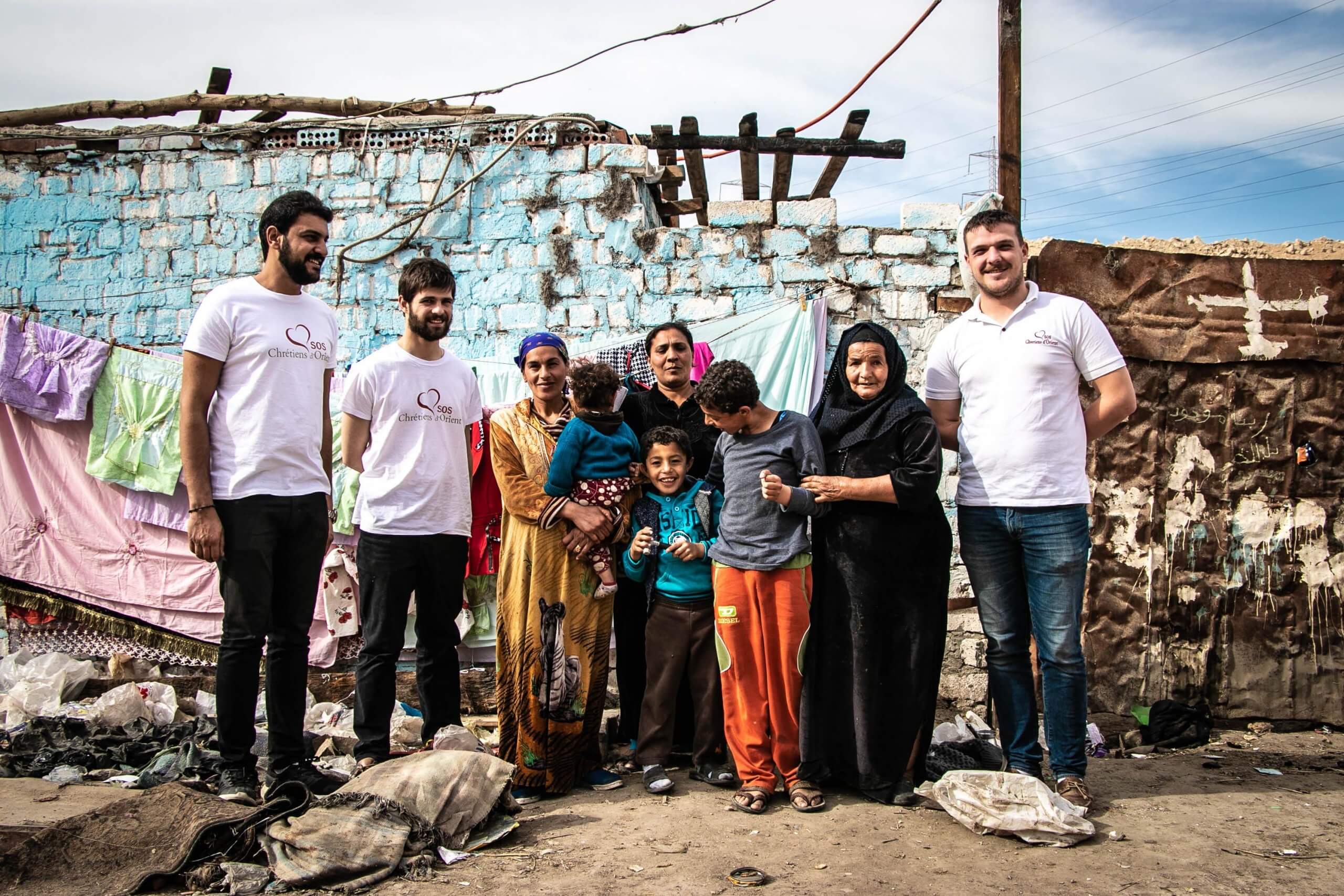
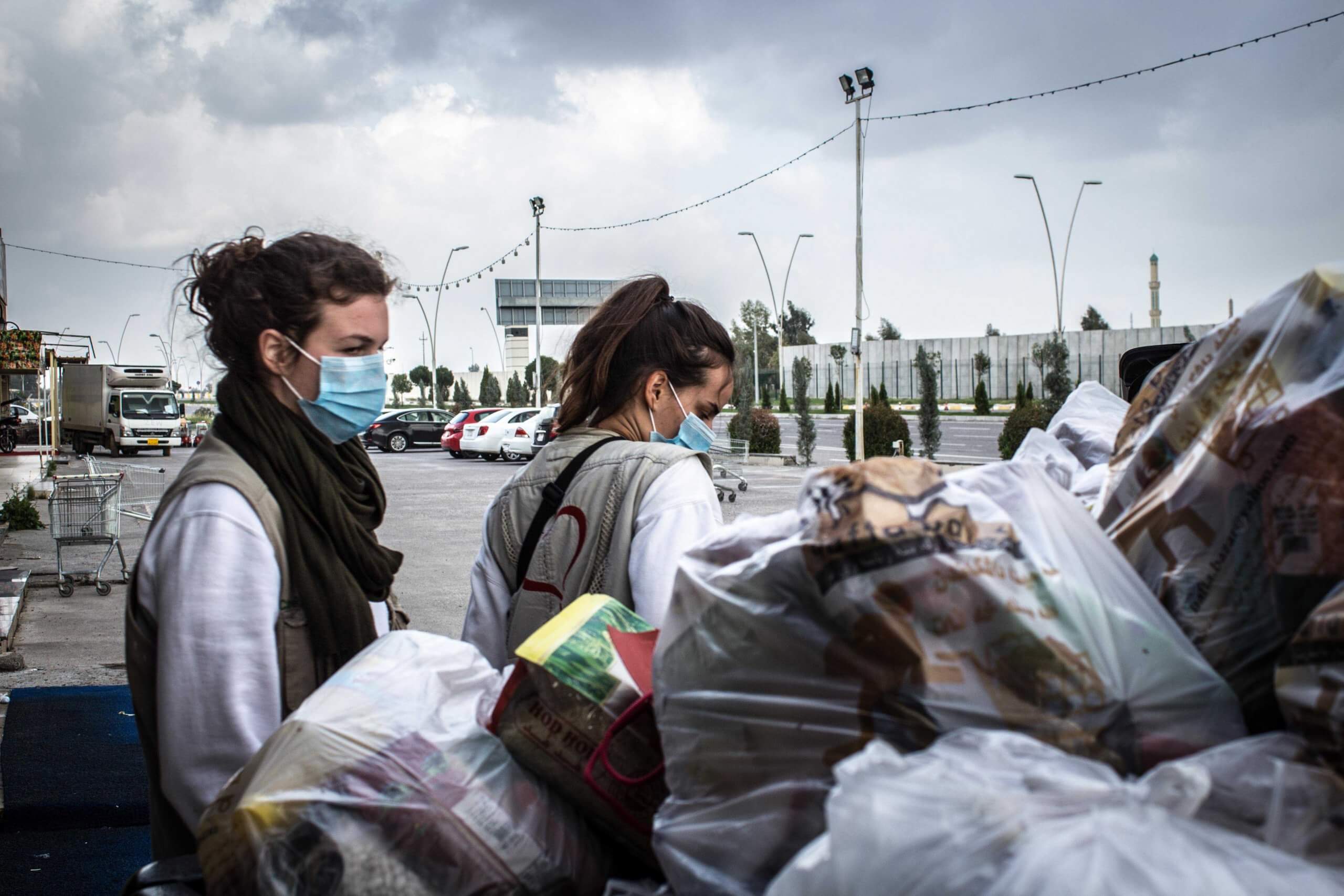
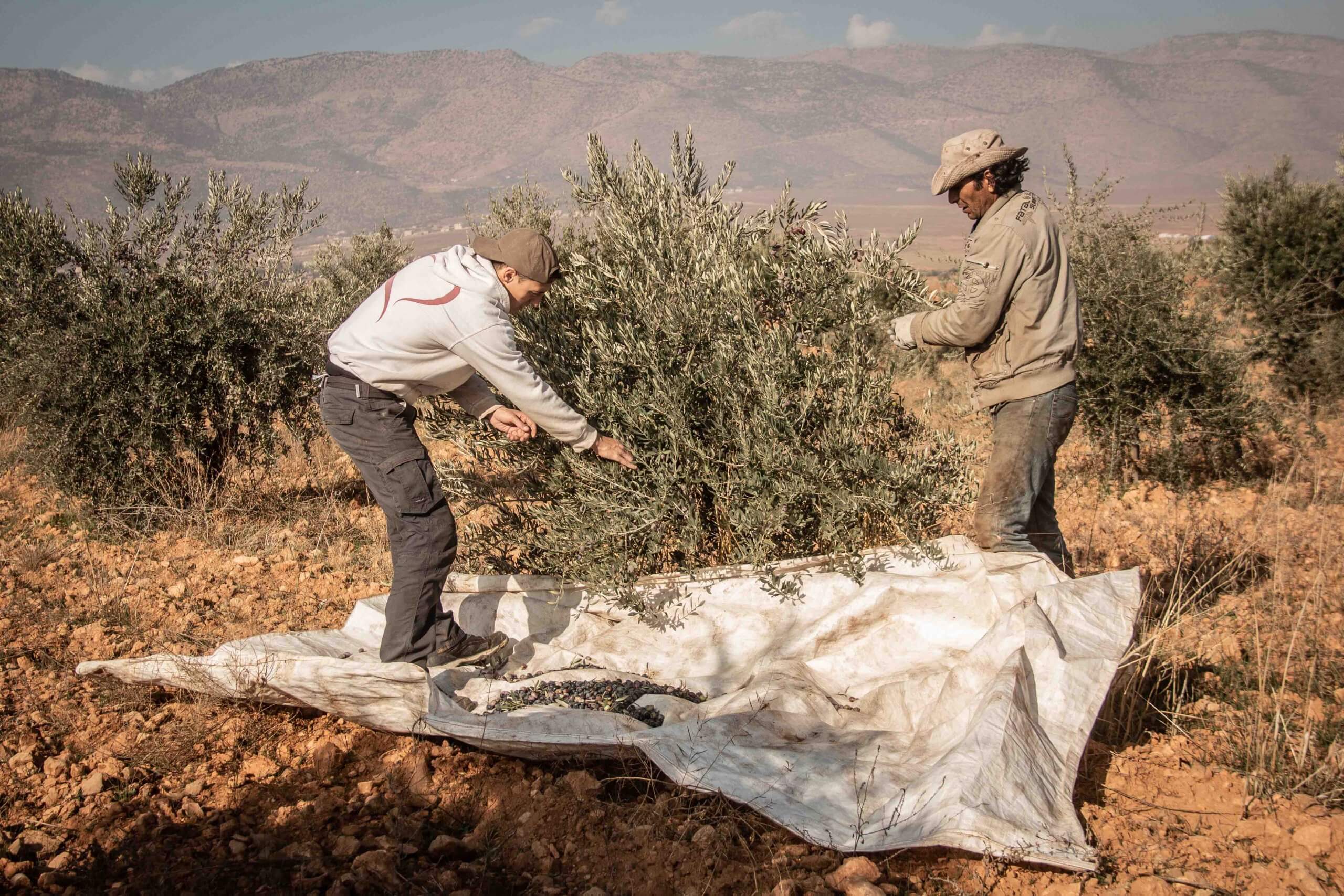
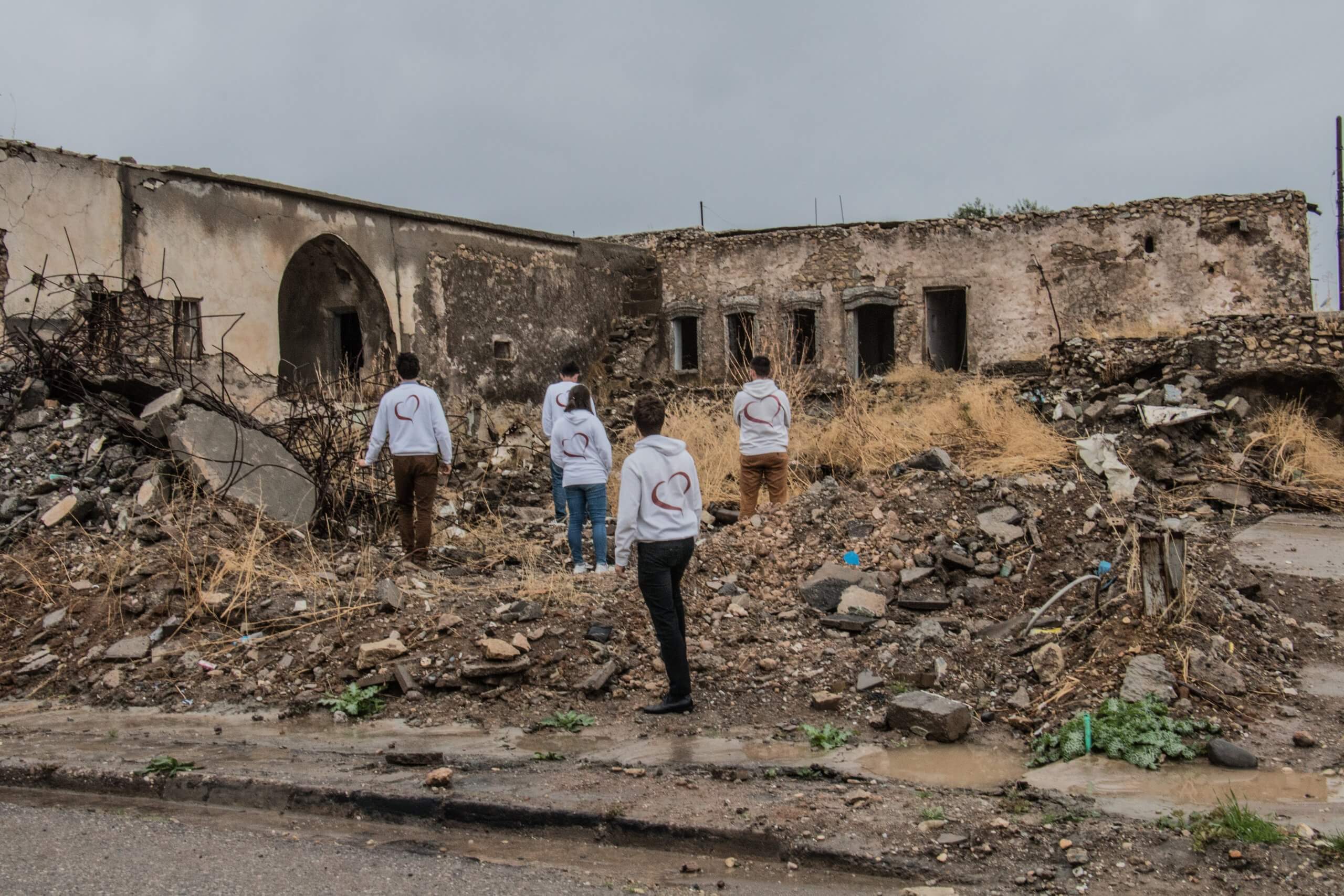
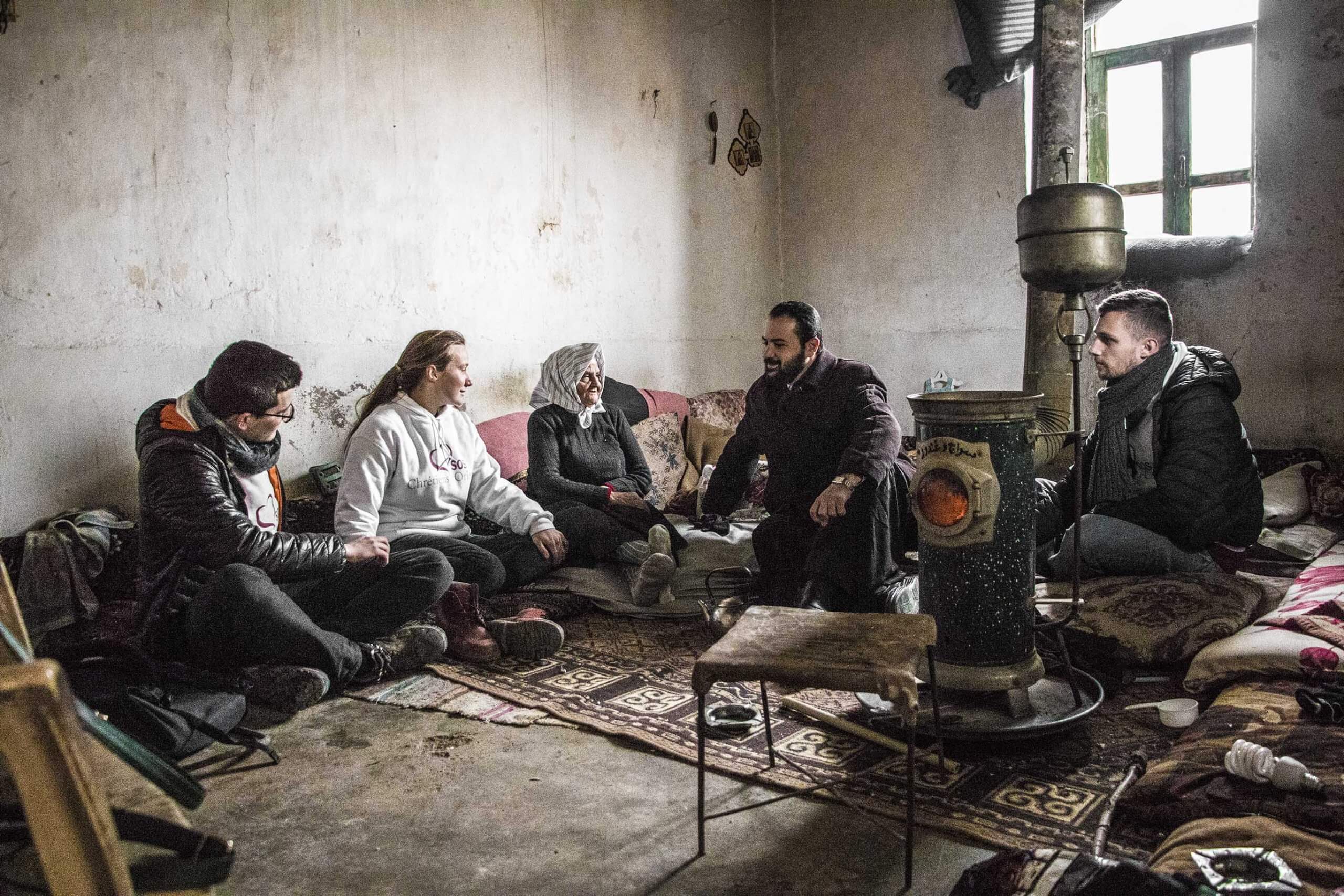
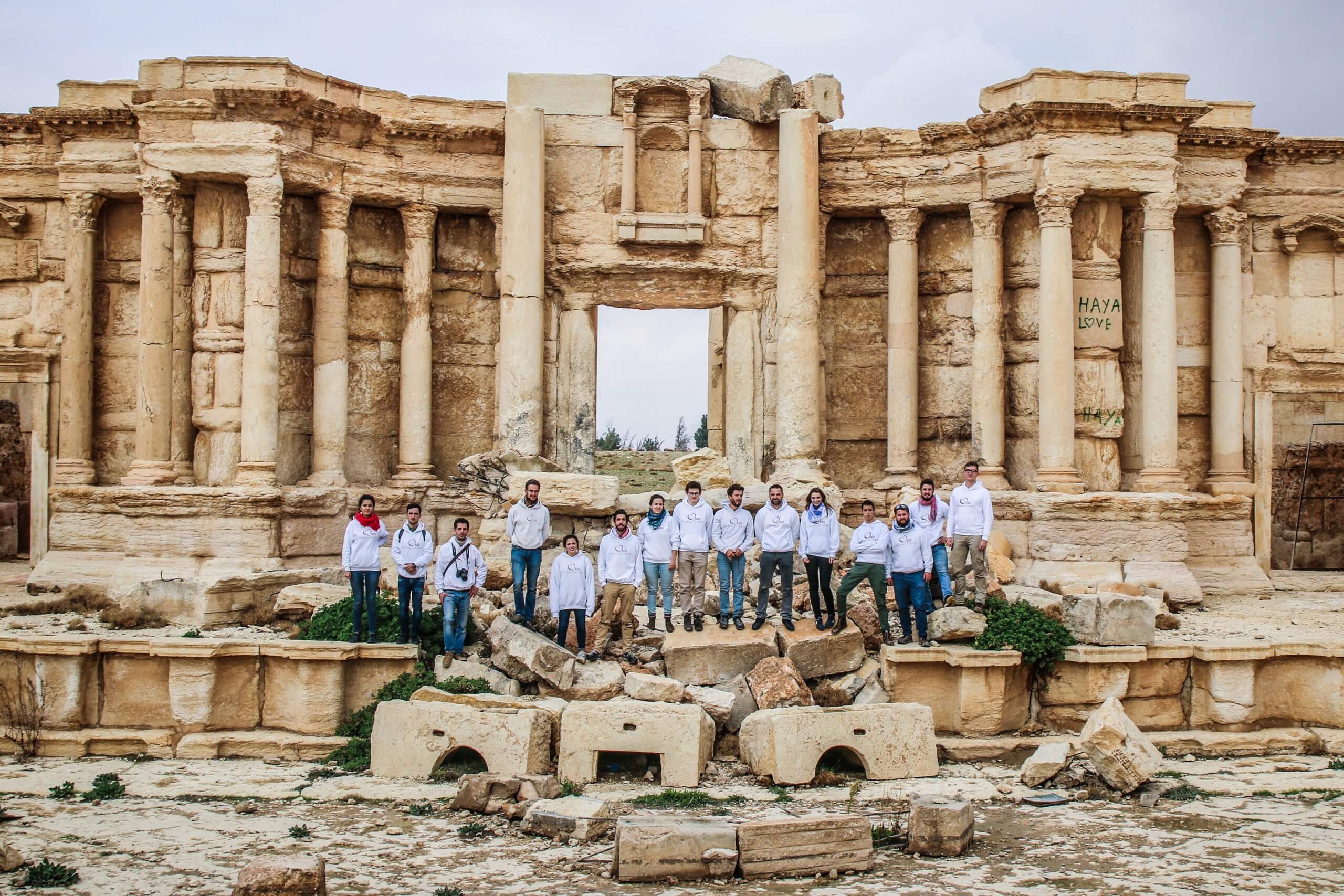
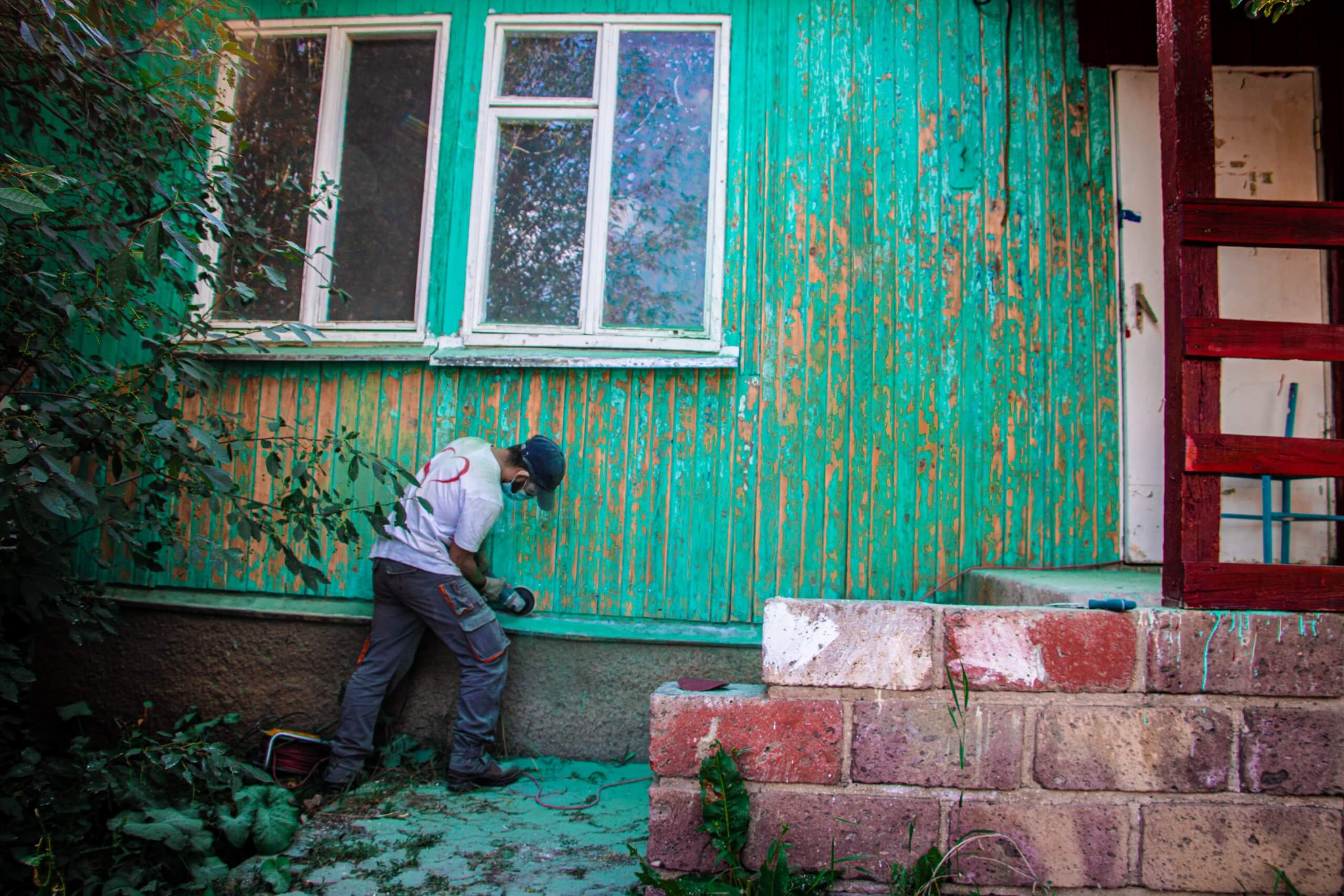
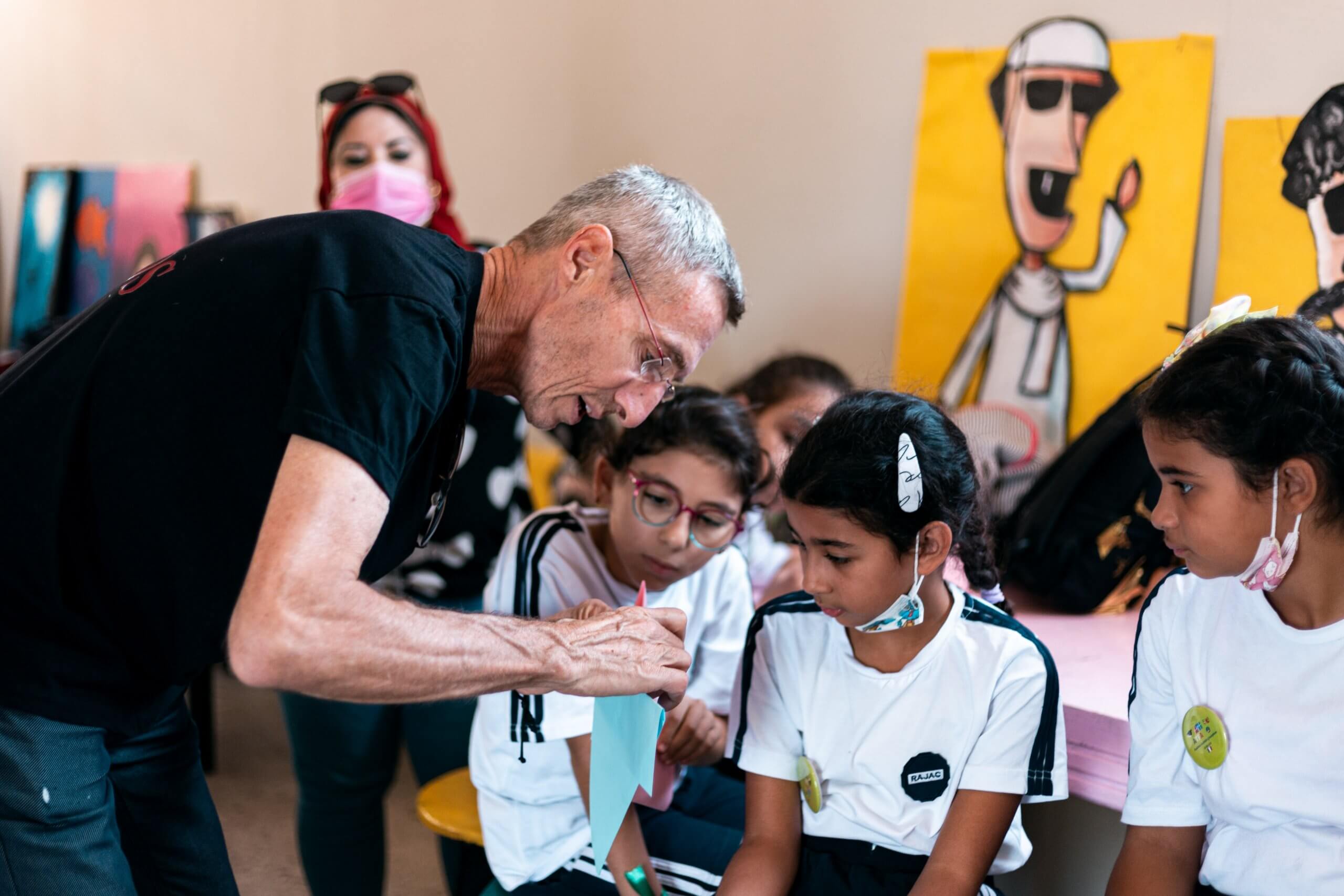
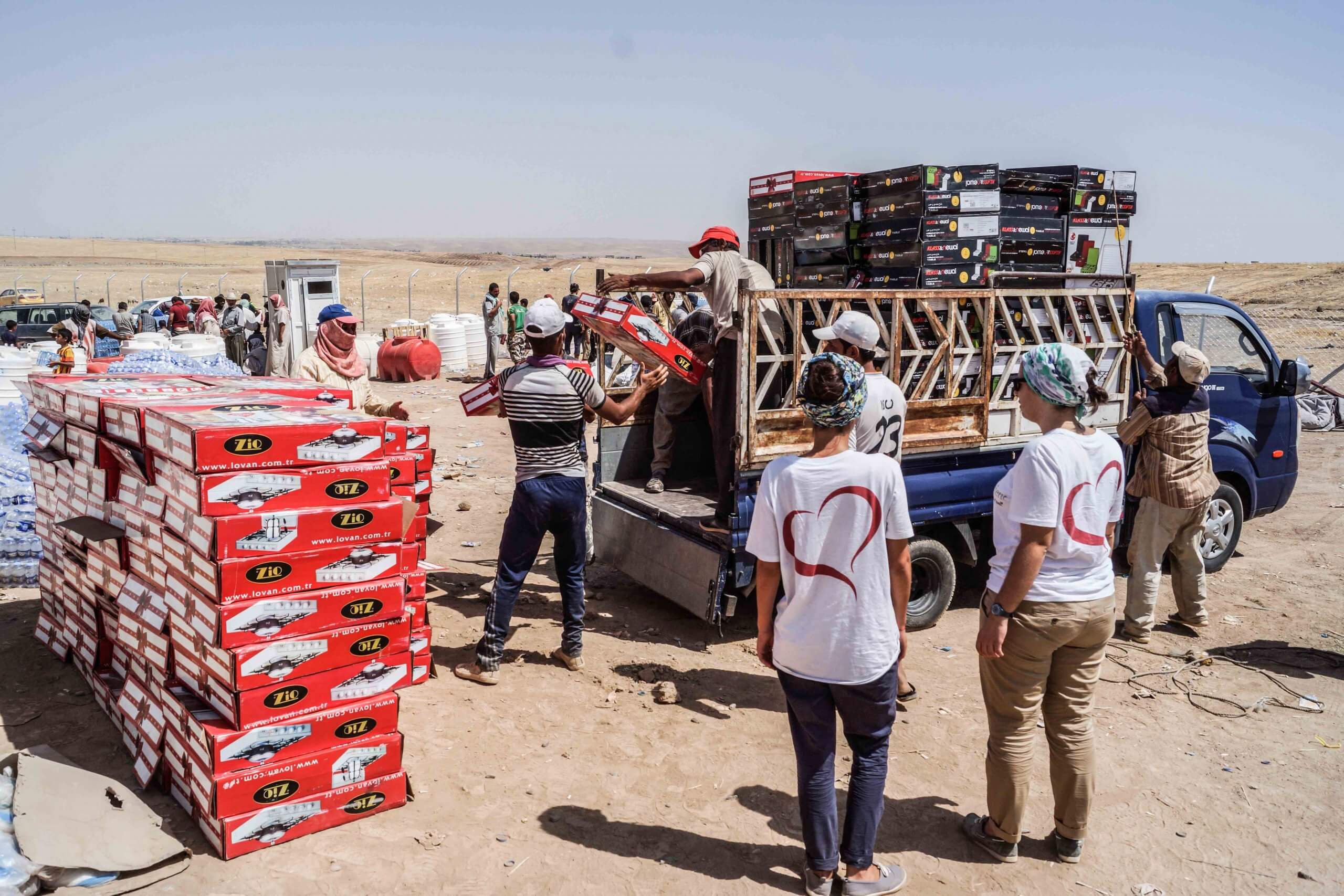
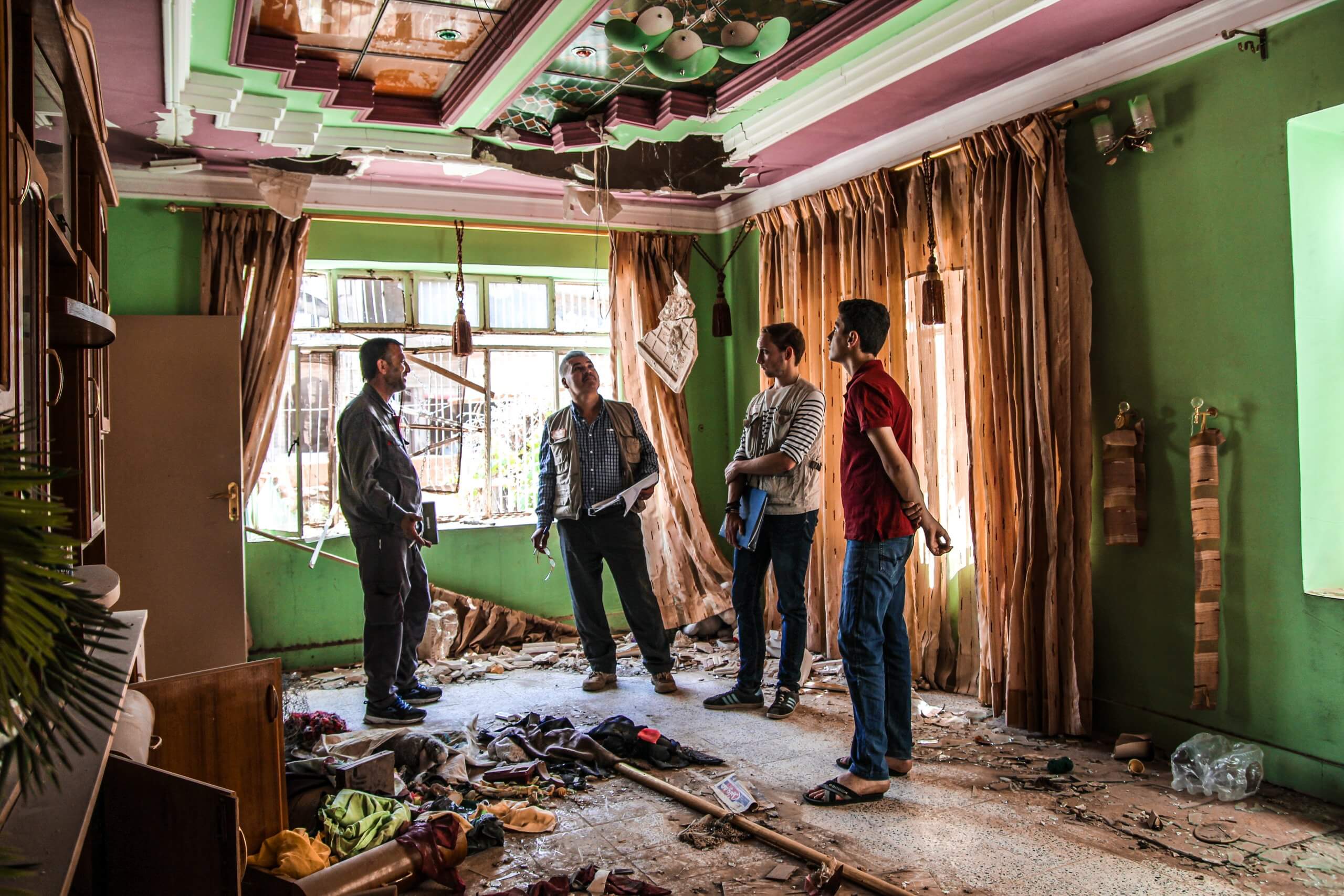
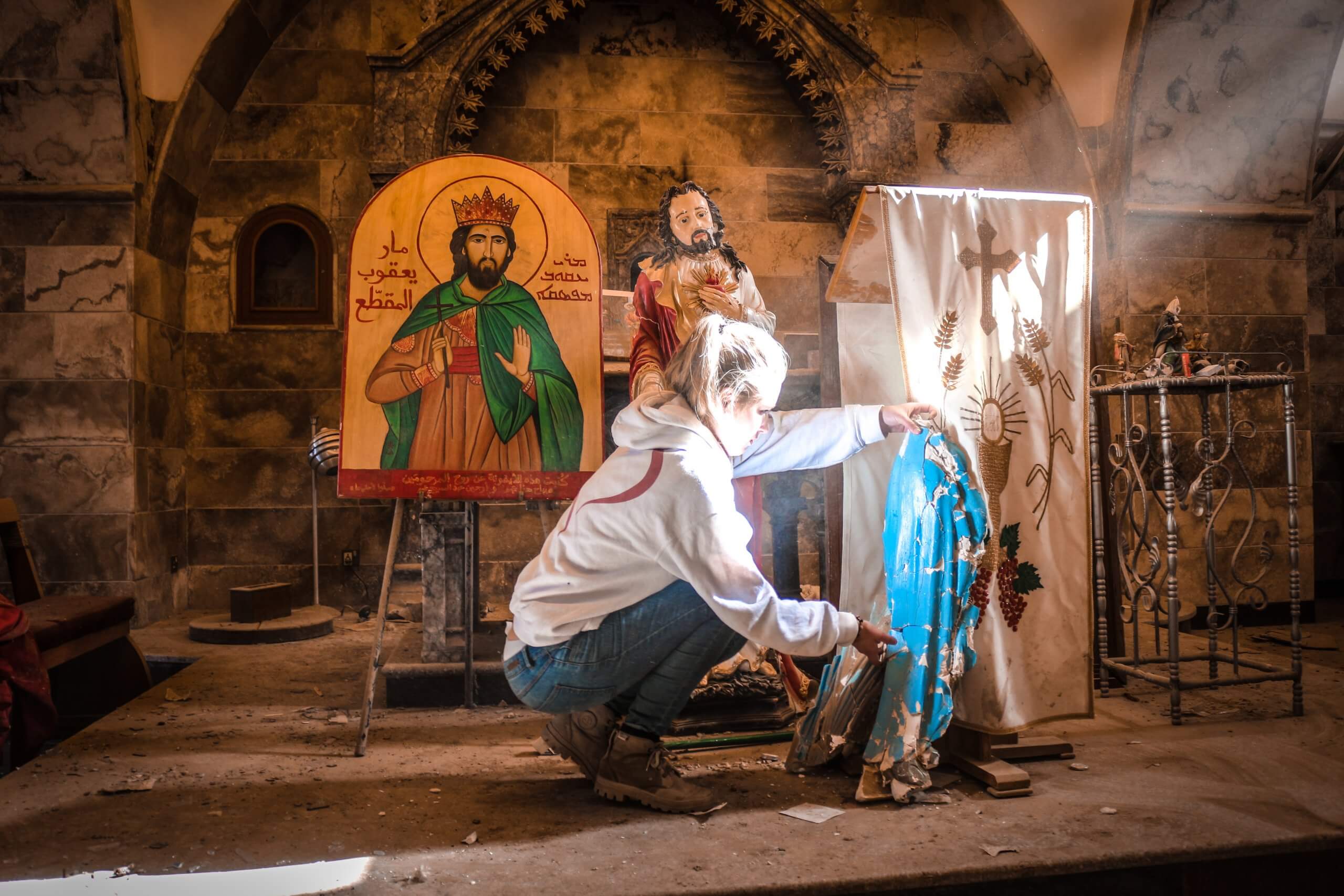
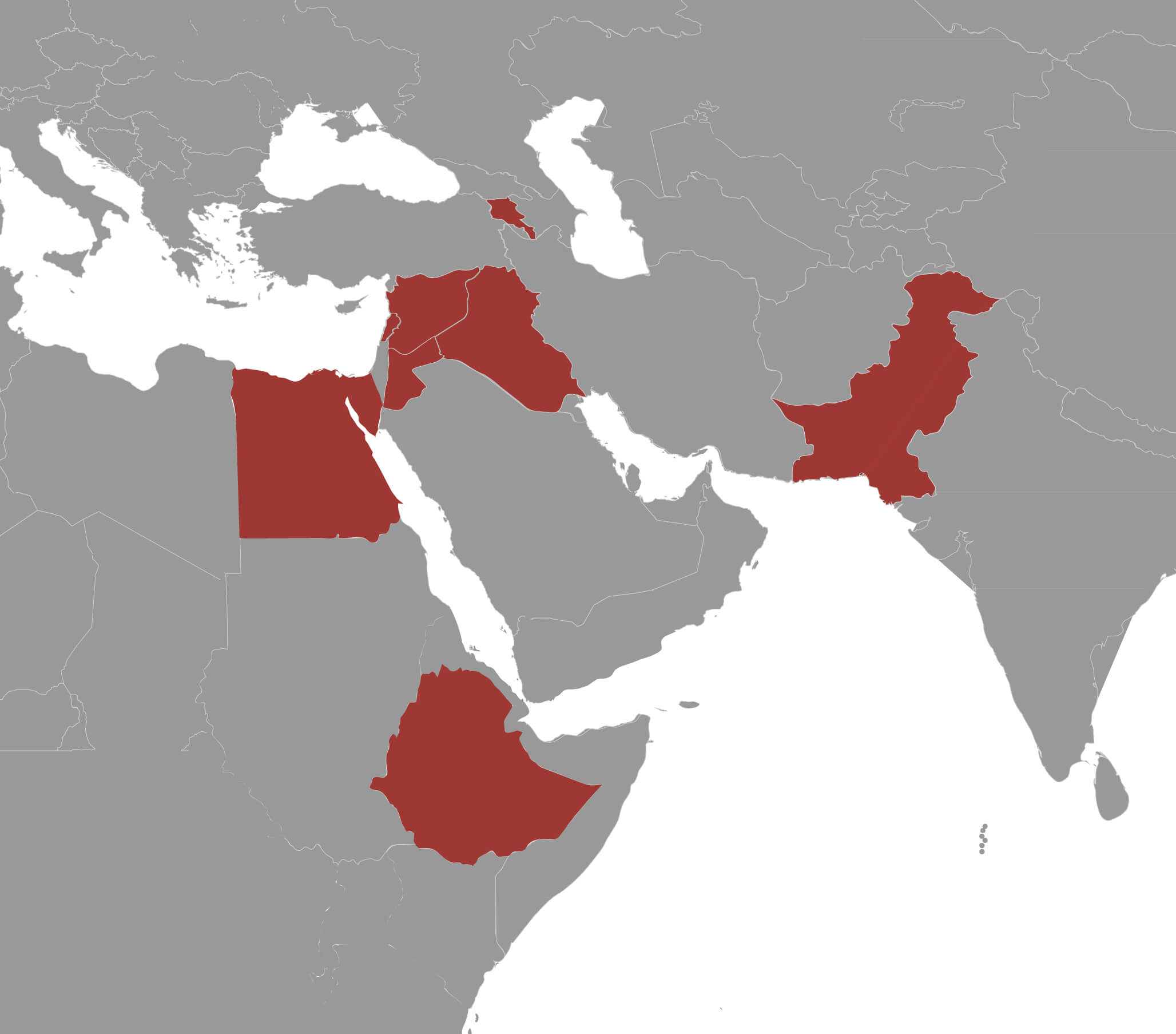

They are students, young workers or pensioners; they are studying human resources, heritage renovation, graphic design; they are between 18 and 80 years old. We find them in the land of the Pharaohs, in the slum of Ezbet El-Nakhl, in the land of the Cedars, in the maze of Tripoli’s streets, in the land of the Tigris and the Euphrates, in the ruins of a former jihadist stronghold, or in Syria, in the home of a martyr’s family.
They are here to serve, understand and grow. They have not chosen their mission country, they have allowed themselves to be guided, convinced that in this way they will truly be at the service of a cause that can transform them. They are not there primarily to please themselves, to show off with a degree from a top school or to display their superhuman skills. They arrive with apprehensions, fears, and sometimes preconceived ideas, but above all a desire to do good.
On mission, volunteers live in a community. Like in a student residence or in a shared flat, everyone helps out with the vacuuming, cooking, washing the tiles, etc. The volunteer changes his or her life by starting to make his or her bed.* (Admiral William H. MacRaven book)
Only then can they concentrate on the heart of their mission. Between visits to poor families, reconstruction sites, activities with the children, all find it worthwhile. They rebuild houses in the Christian district of Midan in Aleppo, perform their first delivery in a slum in Cairo, get an elderly person out of the room she has not left for 15 years.
Their talents, qualities and skills are put to good use. All are empowered. Some are appointed general secretary, others project managers, communication officers, activity managers, etc. After a period of training and adaptation, they are sent to peripheral towns and villages with the mission of assisting and supporting the population. They do not create the need, they respond to it. The projects are carefully selected by the heads of mission and local actors in conjunction with the project leaders, whether they are clergy or lay people. The donations collected are not distributed, they are directly used to buy cement for the blue houses in Maaloula, food packs for poor families in remote villages in Egypt, exercise books for Lebanese children.
But the greatest challenge is to ensure that the benefits of the actions undertaken are sustained over time. It is one thing to carry out a project, but to ensure that others take it on and continue it is another story.
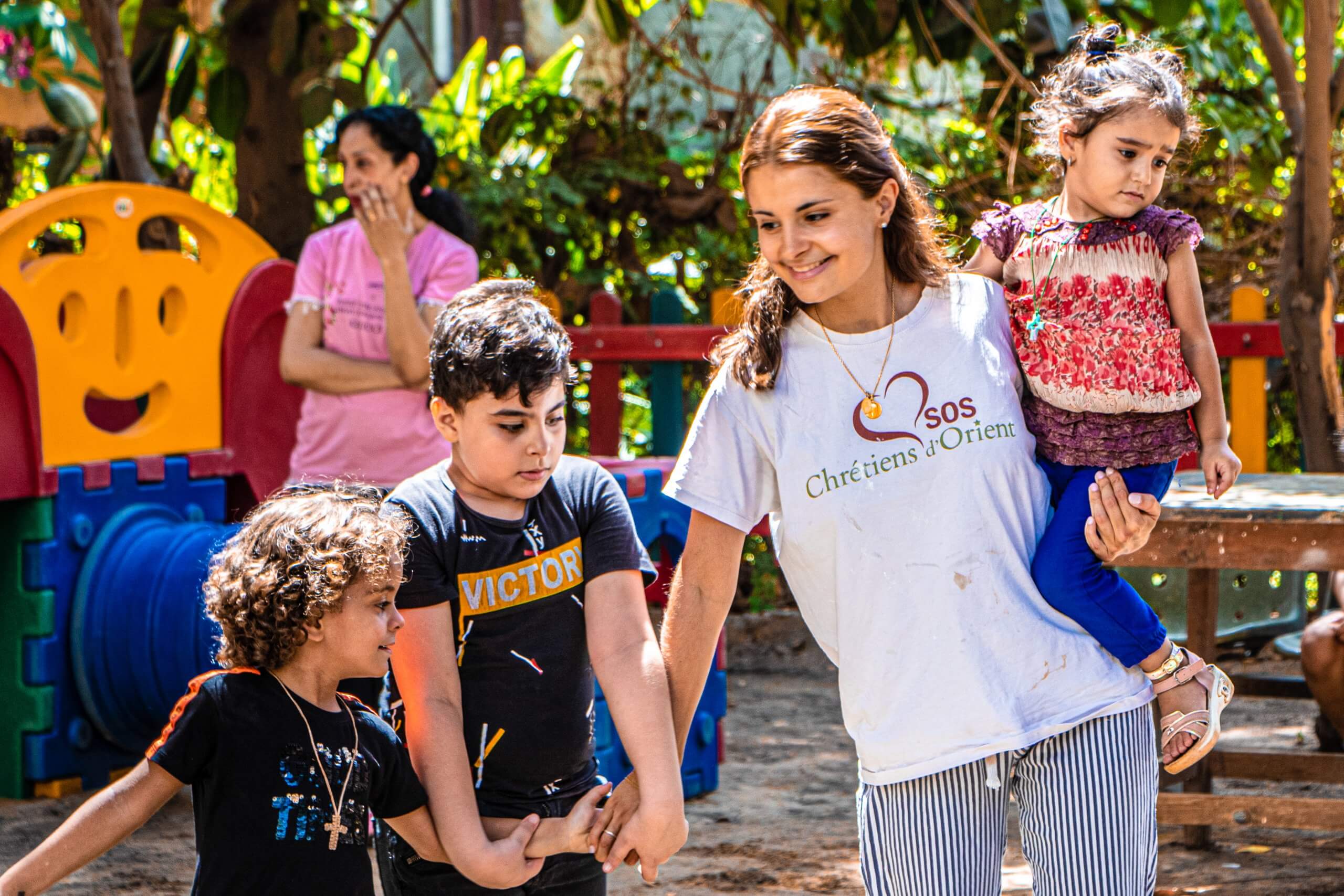
After a few days in the field, the volunteers become aware that the greatest evil from which the Christians of the East suffer is not the lack of money, but oblivion. “I remember this lady who told me, moved, that she was pregnant for the third time, before grabbing my arm and imploring me: “Don’t abandon us”. These words echoed in me during my mission. They are the forgotten people of the West and of their own country.” Marie, volunteer in Iraq.
For these persecuted populations, the fear of being abandoned is the worst agony. And for good reason, these Iraqi and Syrian families thrown on the roads of exile or locked in houses destroyed by shells have been abandoned by the media. They were only scoops, thrown away once they were no longer of interest. And for the most part, these Christians, like the families of the martyrs of Mhardeh, a Christian village under terrorist fire since 2011, live in indifference.
So when young and crazy Europeans walk through the doors of their house or down their street, “imagine their emotion! They see young people who have come from far away – France is not next door – arrive in their village to serve them. Without salary, with no other objective than their happiness and well-being. Their emotion is unimaginable, indescribable,” says Vianney, a volunteer in Iraq.
Money does not rule the world, love does. Aware that the physical presence of volunteers is required by the Christians of the East, the association has chosen to send volunteers to live among the families, in their villages, all year round, to share their daily lives, their sorrows and their joys. “You are the face of hope,” confides Dole, a Syrian mother bereaved by the death of her son Ra’ed, to Louis-Alban, a volunteer in Syria. “Your visit gave me renewed energy! Everything I dreamed of, you have done,” echoes Miss Leïla, who welcomes children from the garbage collectors of Cairo in her daycare centre. “Our presence, our smile, our gestures comfort them and do them good,” concluded Clarisse, a volunteer in Egypt.
This is the case of Nariman, a Syrian woman who was dispossessed of her house overnight in the Wadi al Sayeh neighbourhood of Homs. Today, volunteers are working on the reconstruction of her flat, much to the delight of Nariman, who is still impatiently waiting for them at the foot of her building. She not only observes the volunteers, but also helps them collect the rubble before returning an hour later with the lunch box.
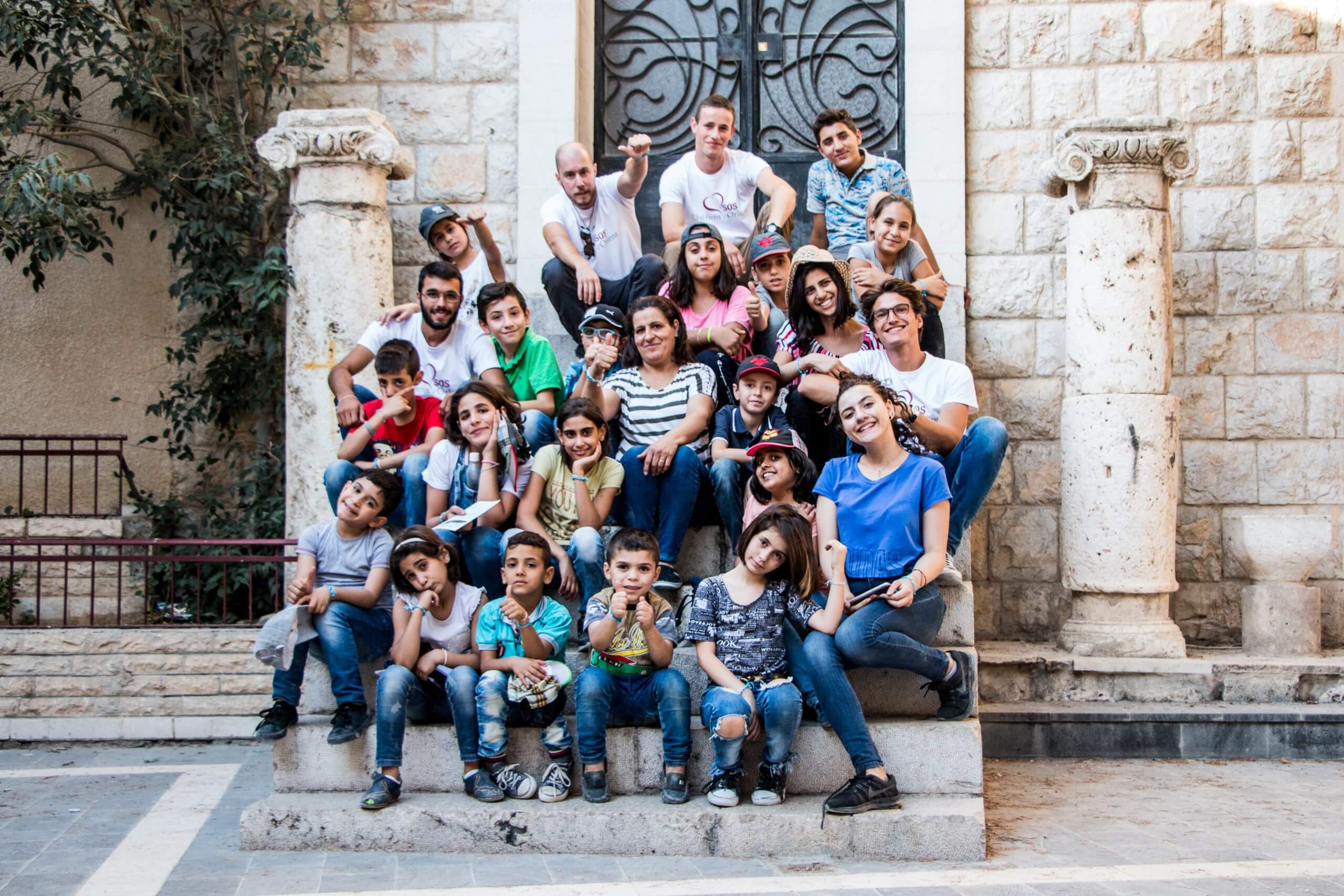
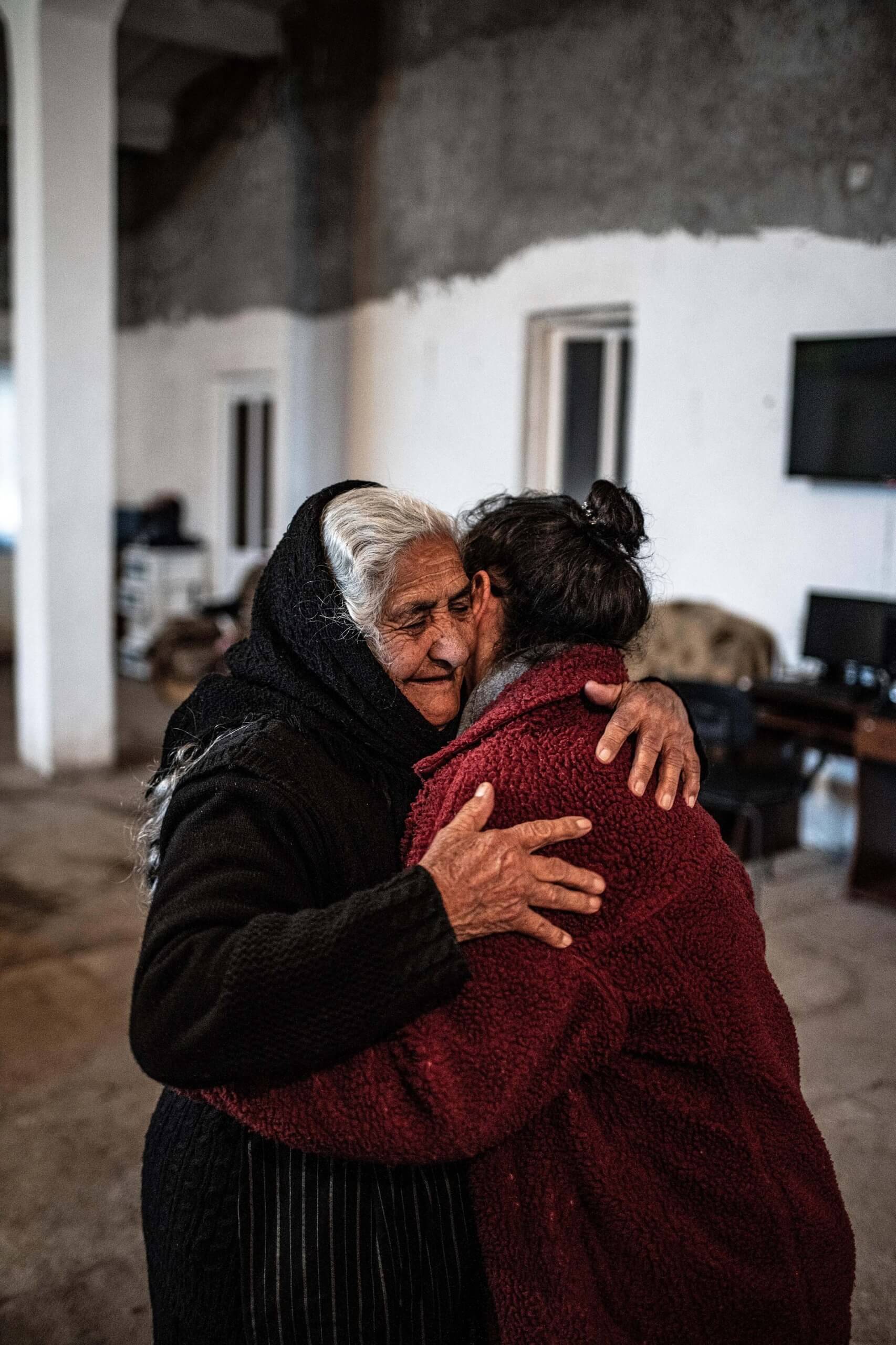
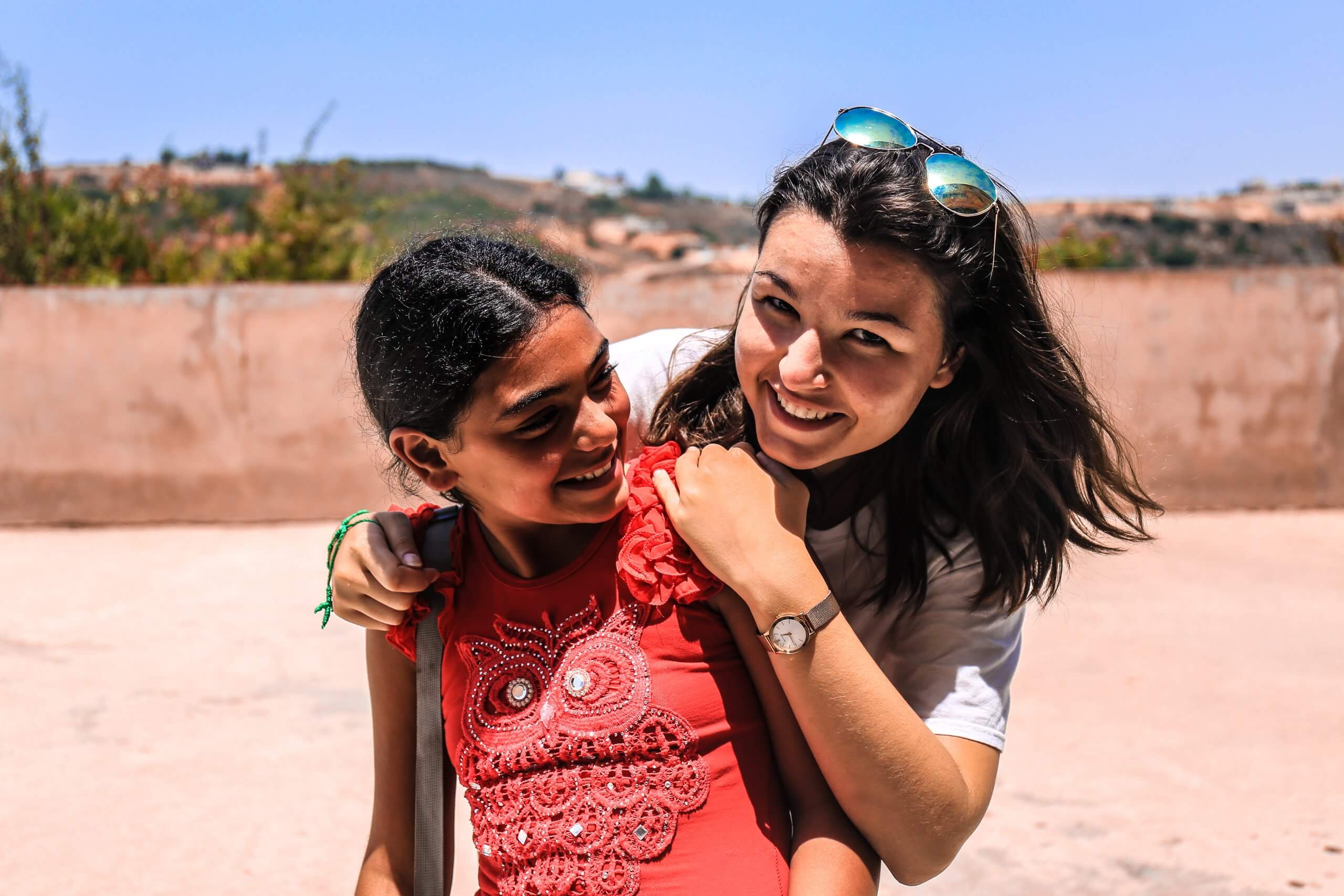
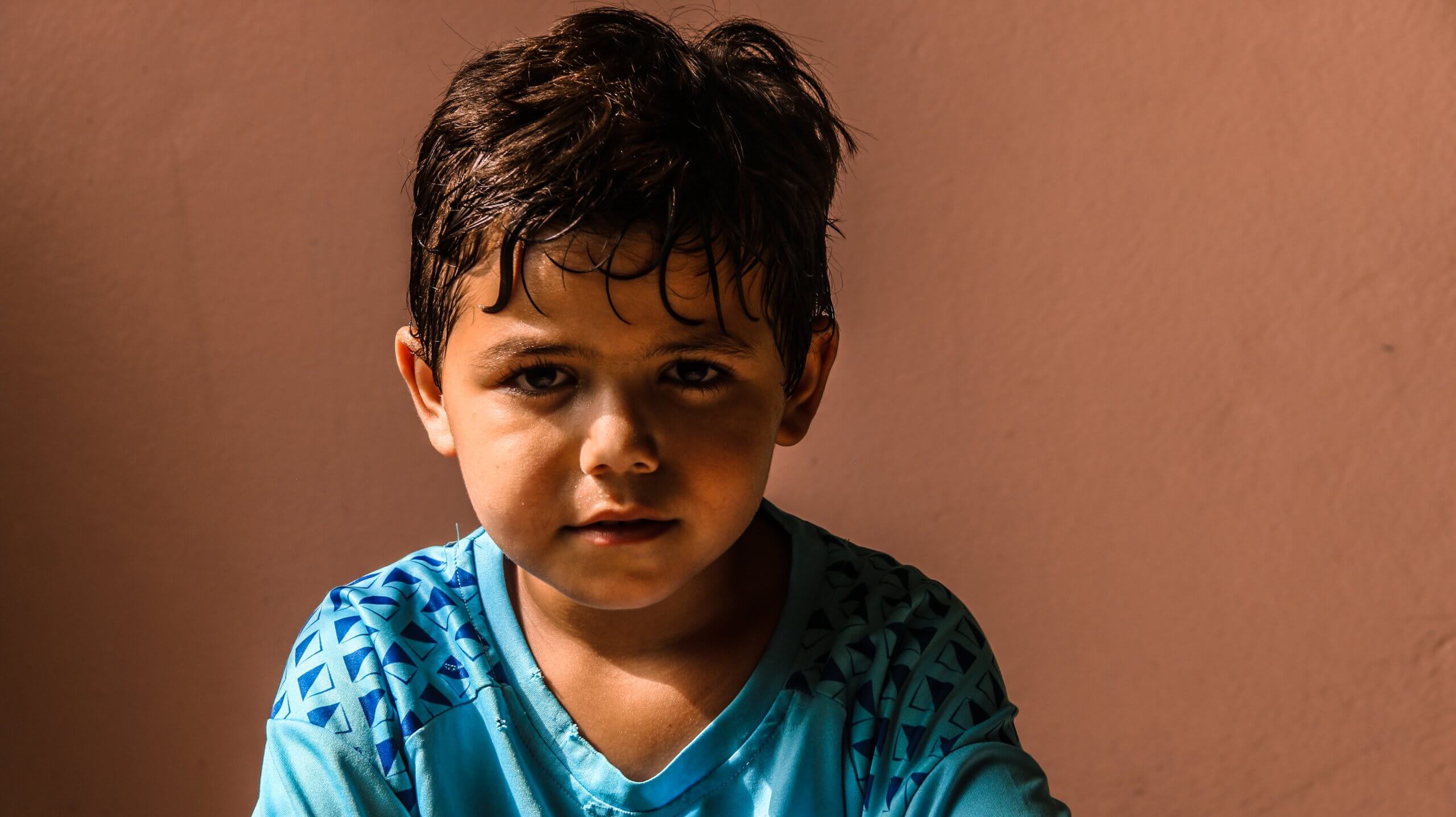
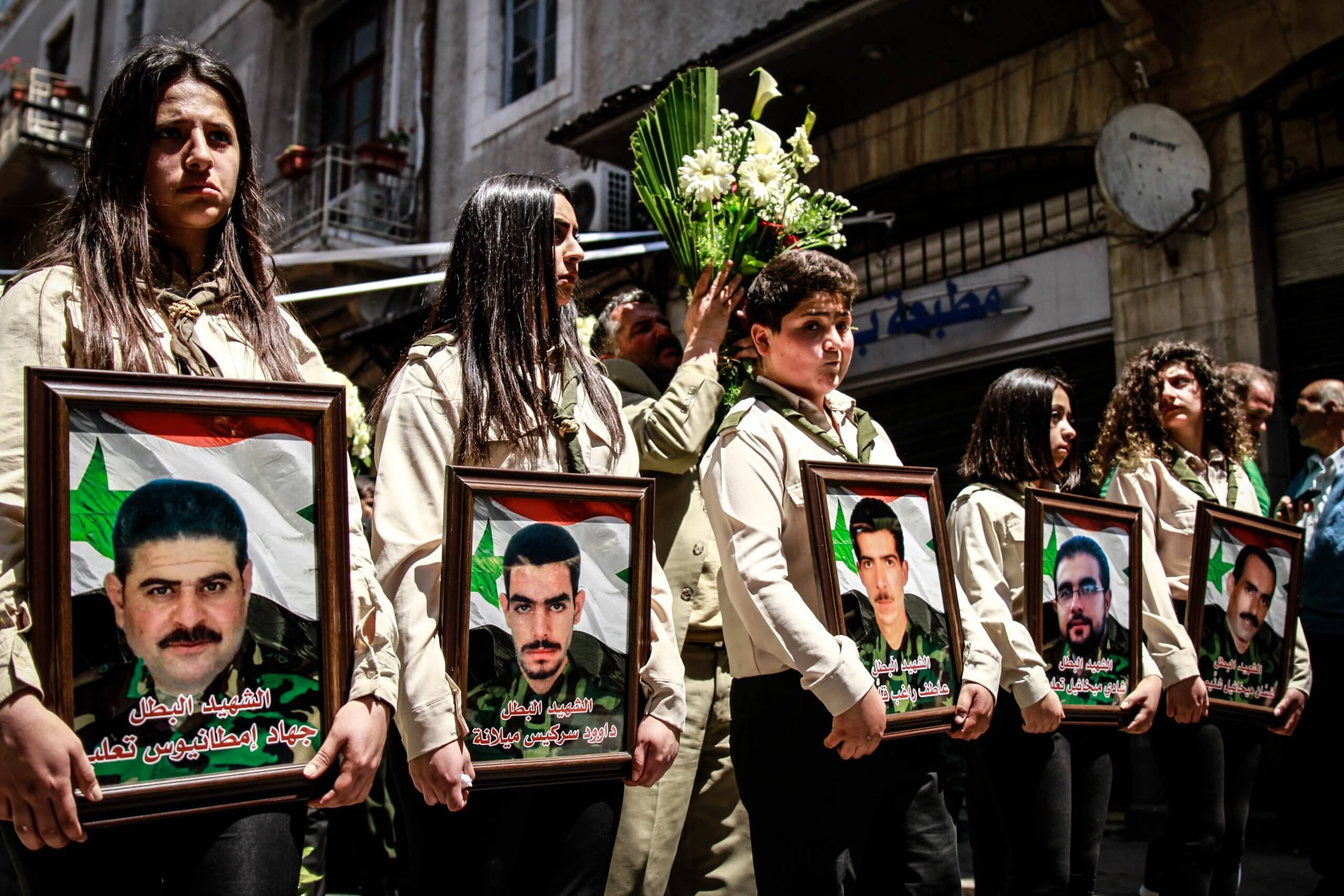
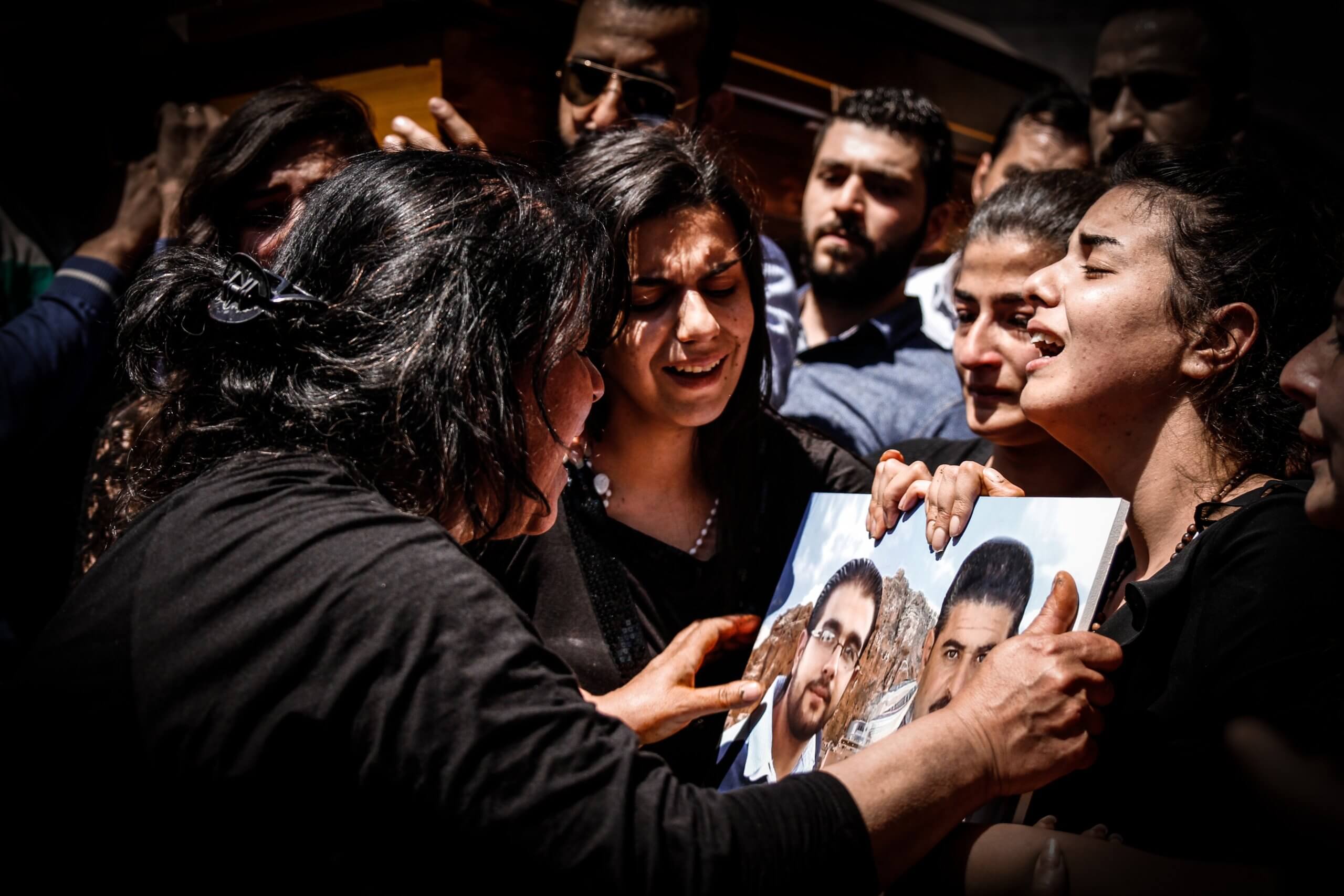
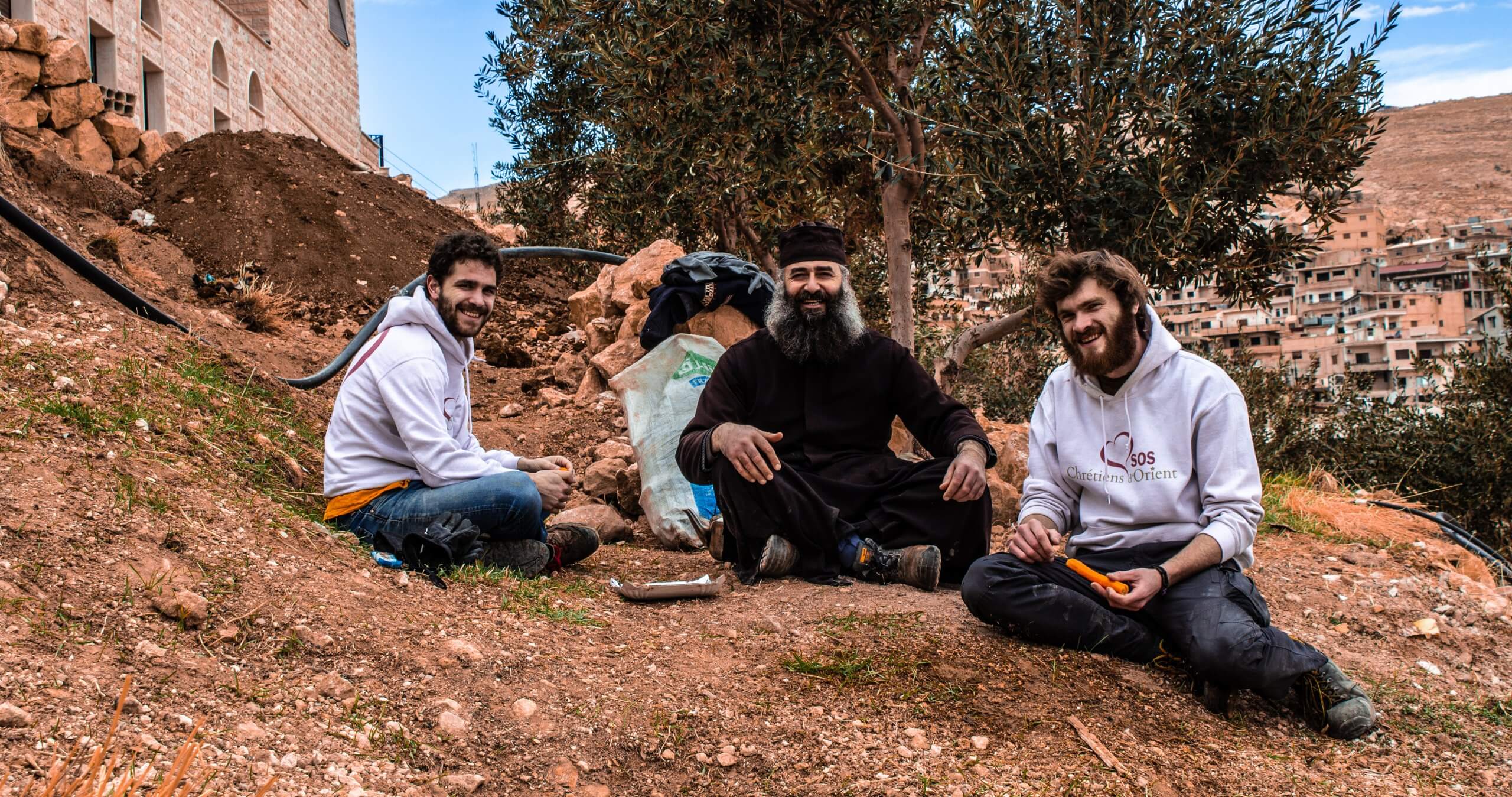
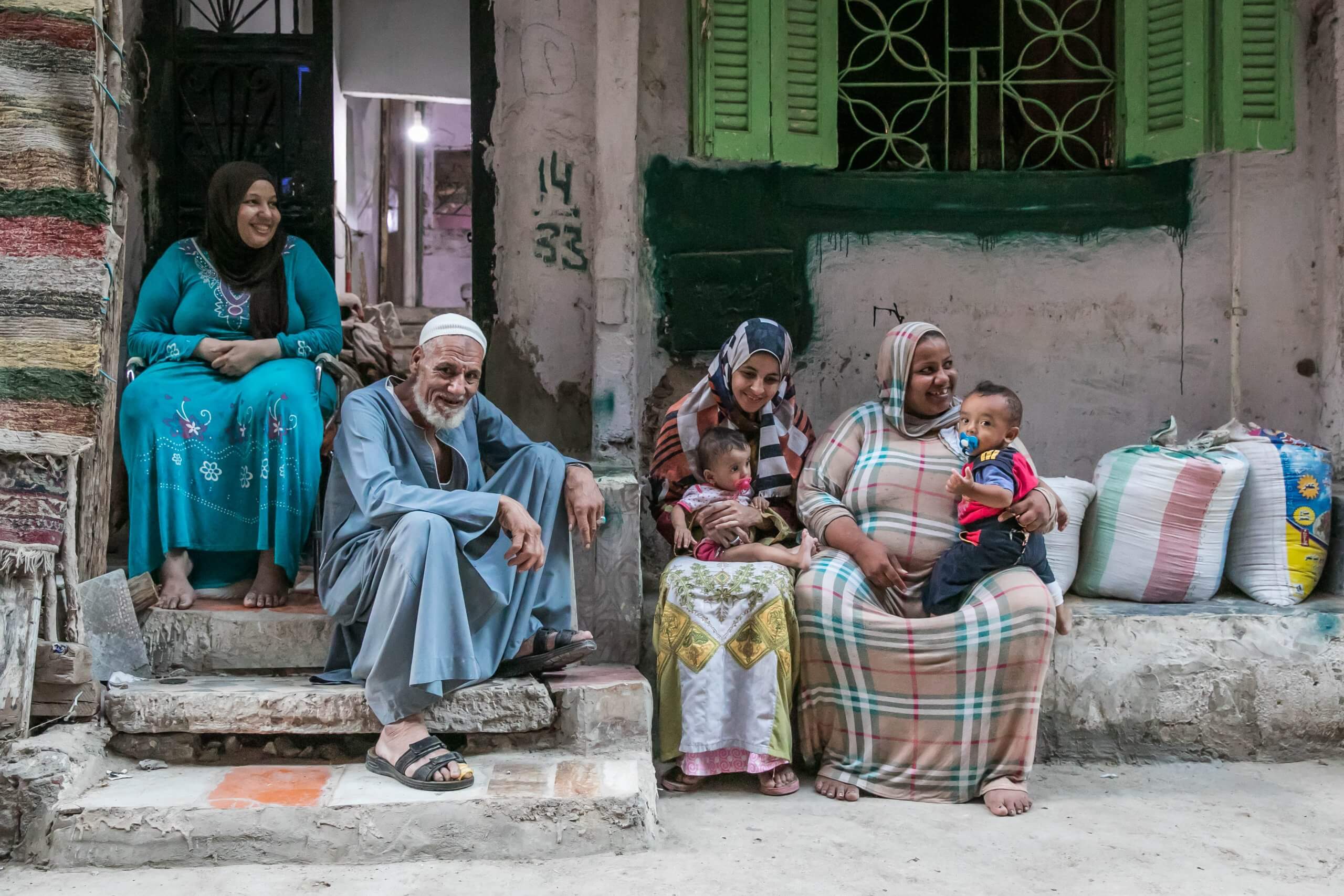
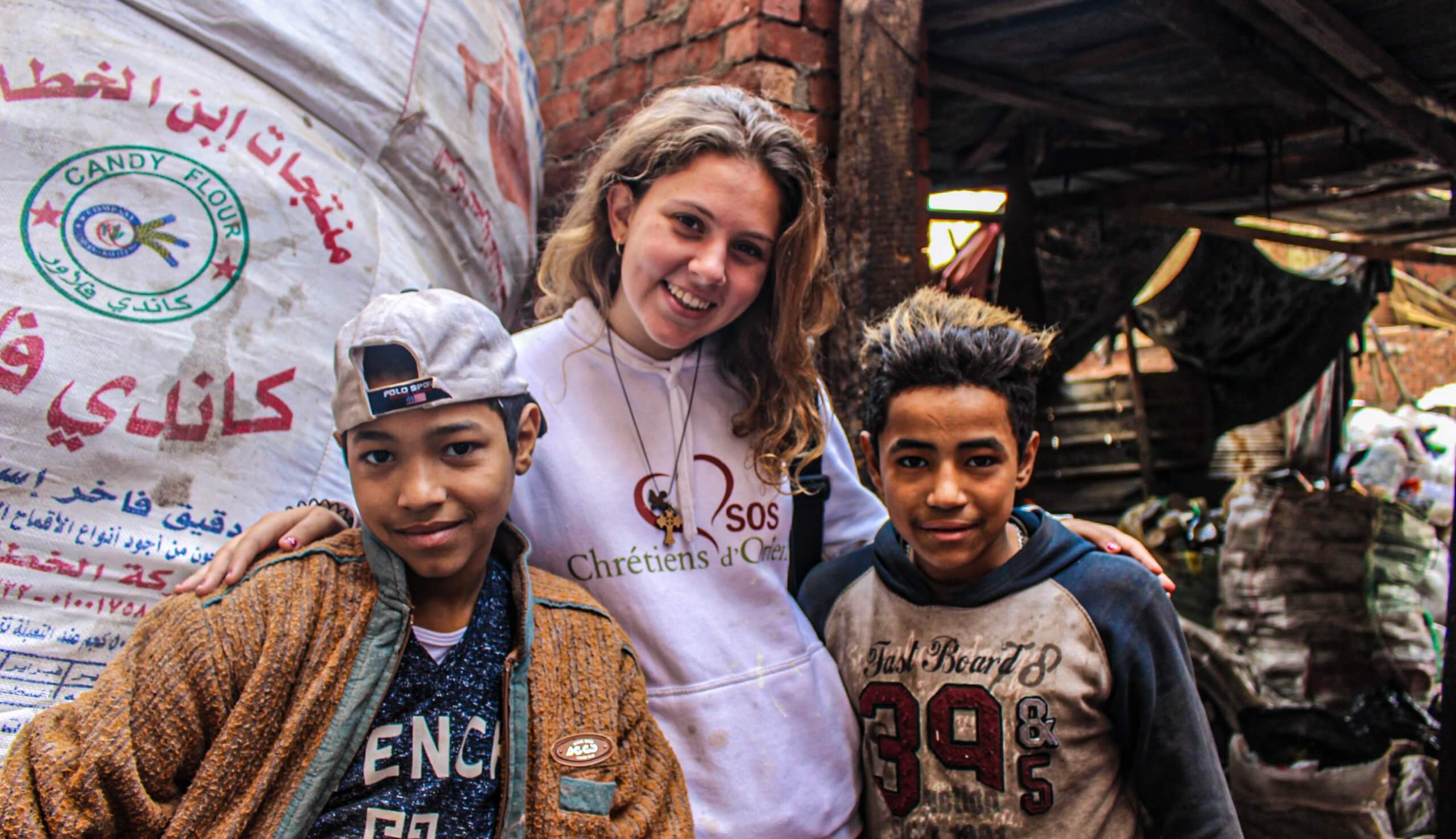
Being a volunteer is not something simple or easy. “You don’t get any honour or glory from helping Christians in need. And yet, this commitment brings us much more than we could have hoped for: seeing a child smile during a donation, supporting families in faith and prayer is priceless,” explains Claire, a volunteer in Iraq.
In contact with the inhabitants, the volunteers discover another reality, another misery but also a greater wealth. In the slums, between the waste and the rubbish that accumulates up to the sky, a child smiles at them. A striking contrast that allows us to keep our feet on the ground and reconnect with what is essential. “I discovered myself poor; poor in their simplicity, poor in their innocence, poor in their generosity, poor in their richness of heart. The smiles, the joy, the love and the gratitude that we felt in a simple handshake, all these little things that make them much richer than us, and that make us feel so small among them. ” Claire-Marie, volunteer in Egypt, for eight months.
In the Middle East, not every day is the same. There is no “metro, work, sleep” routine; the unexpected is constant. That evening, Maria is out on the streets of Alexandria. A man under a bridge, hidden under a blanket, that keeps him warm, welcomes her with a big smile and a tender look. She drops him a pack of hot food before walking away with a happy heart. “There will be at least one day when I won’t have to wonder if I’ll find food,” the man lying on the ground tells her.
The volunteers have heard and lived through hundreds of difficult stories and experiences. Stories of massacre, of flight, of blood-curdling fear… like that of Safar, a young Christian woman from Mosul, a refugee in Ankawa. “Daesh tortured my grandmother to obtain information about our comings and goings. They broke her spine. She couldn’t walk anymore. Fortunately they didn’t kill her.” Stories that sound like something out of a Hollywood blockbuster, but they are real. For young French people just starting out in life, opening their eyes to the plight of discriminated, persecuted and murdered populations is not always easy.
But much more than that, the volunteers’ mission is punctuated by episodes of deep joy, experienced in the homes of families in Karamlesh (Iraq), in a classroom in Aleppo (Syria), during a game of cards in Rmeich (Lebanon)… Drinking a cup of Turkish coffee, glued to Zacharia’s lips as he tells the story of his chapel, holding Mona in her arms between two strokes of the paintbrush, helping Johnny to clear the rubbe of a house destroyed by a shell… These are the simple but necessary actions of volunteers.
Mother Theresa said: “We realise that what we do is only a drop in the ocean. But if that drop did not exist, it would be missing. ” Well, even if our action there is only a drop, (…) it is still a few lives we can soften, and a few hearts we can warm. ” Louis, volunteer in Syria.
The important thing is not to do a lot, nor to do extraordinary things, but to do the small tasks well. “In life you have to go to the essential, not waste time on trivia. I met a Christian population in Egypt that is supportive, warm, welcoming and simple, but in a state of distress. I gave them a little as far as I could afford…and they gave me back a hundredfold! I can’t feel sorry for myself but rather never give up, fight, trust, keep it simple, keep smiling and give time for those around me.”
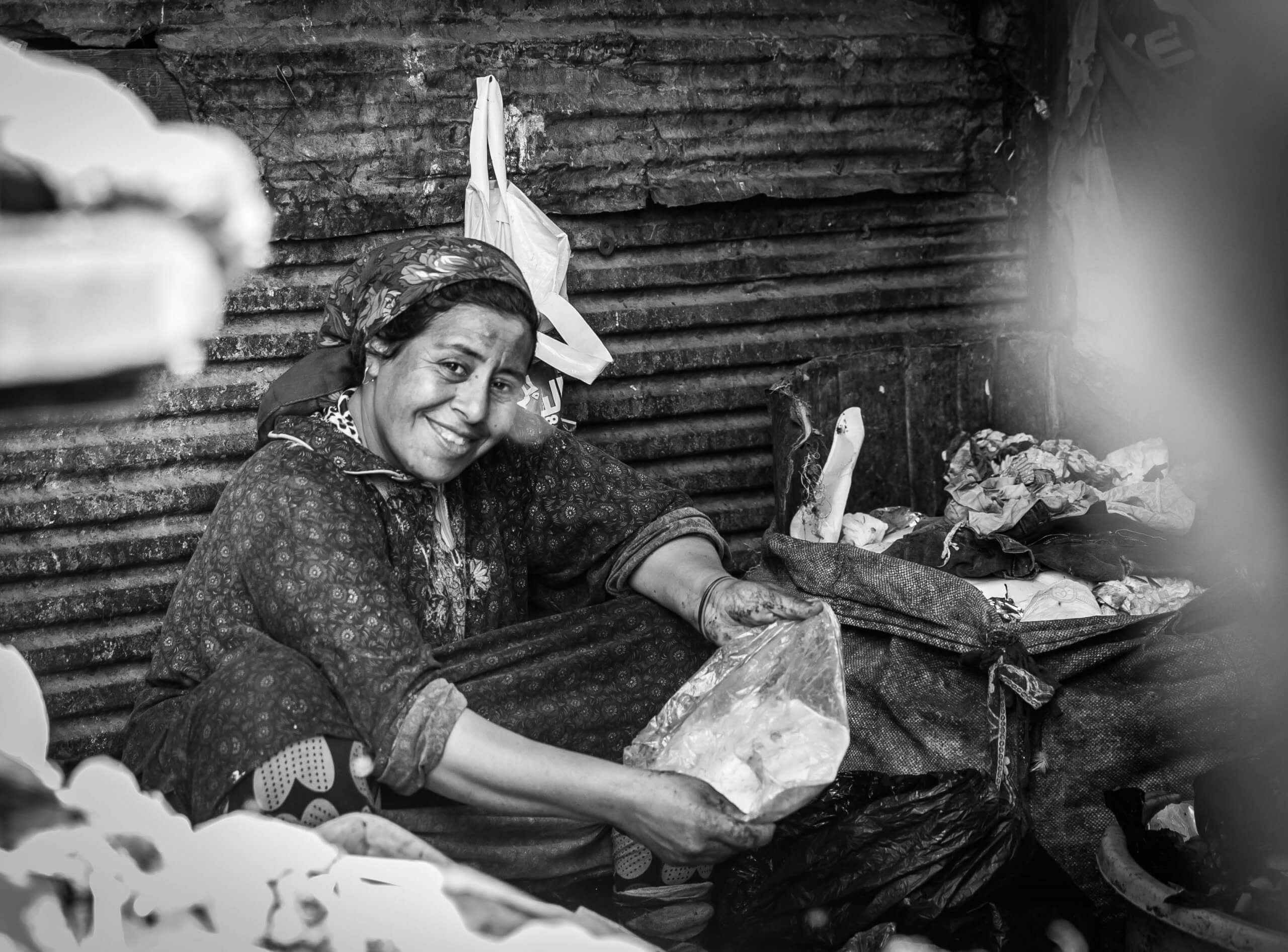
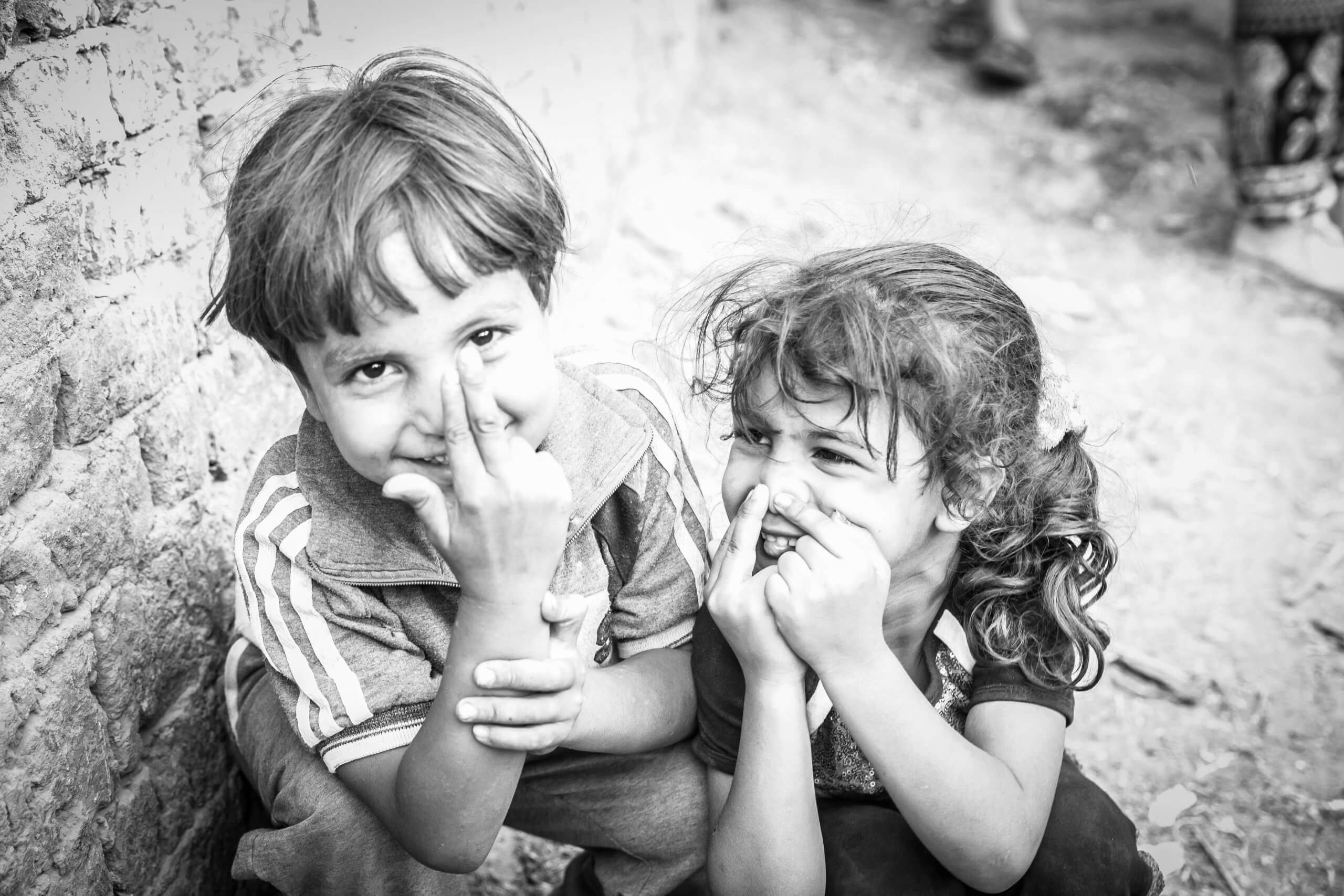
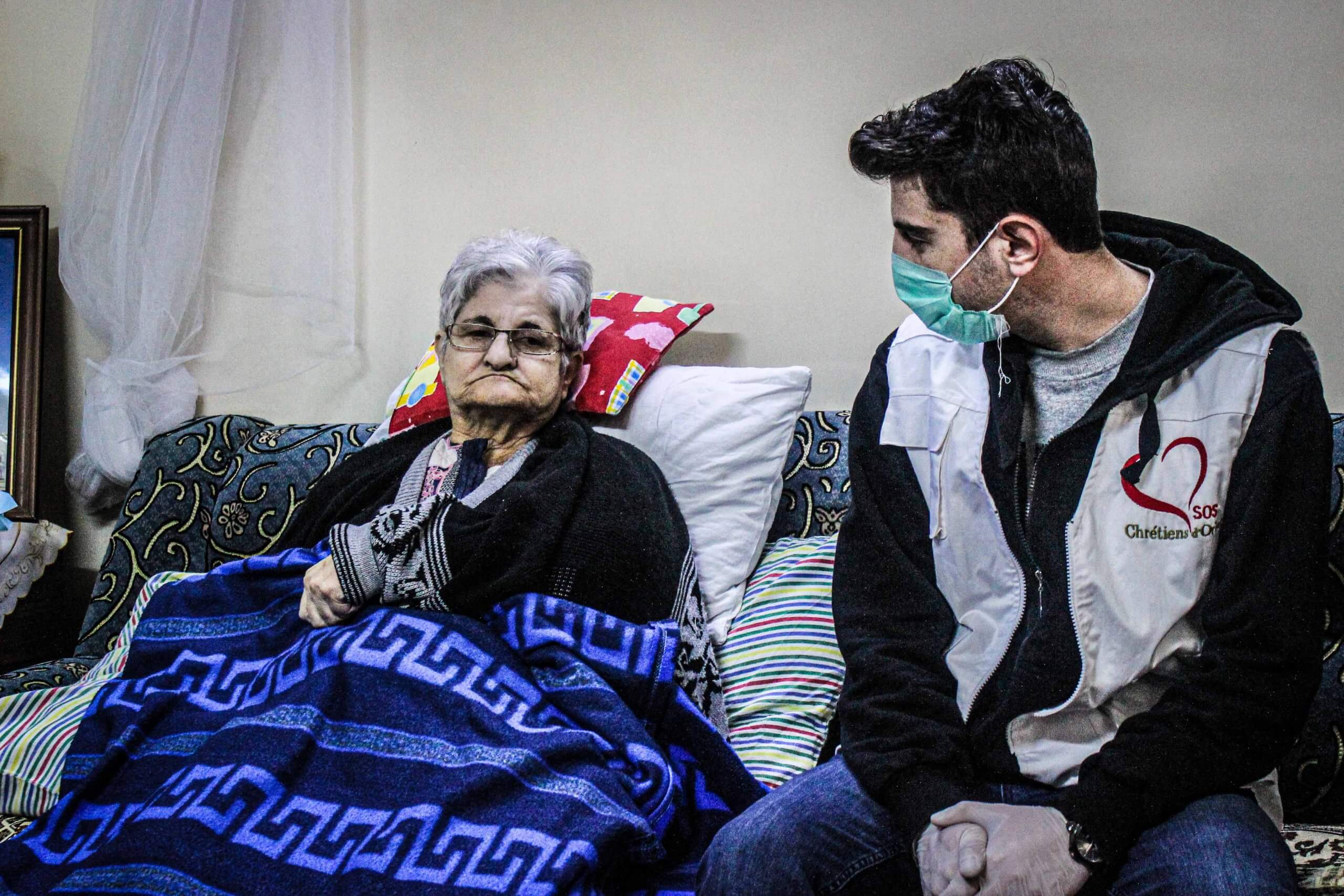
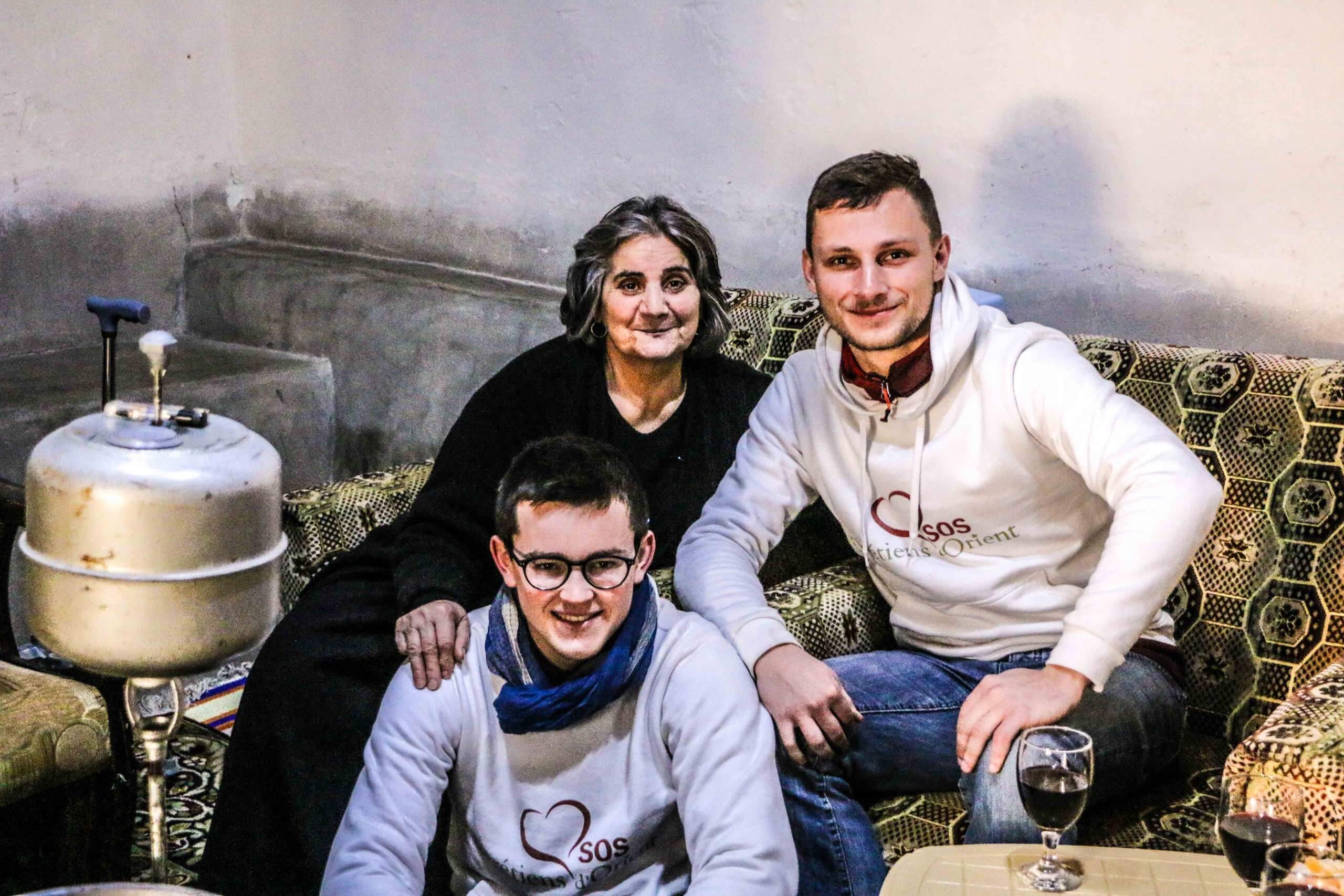
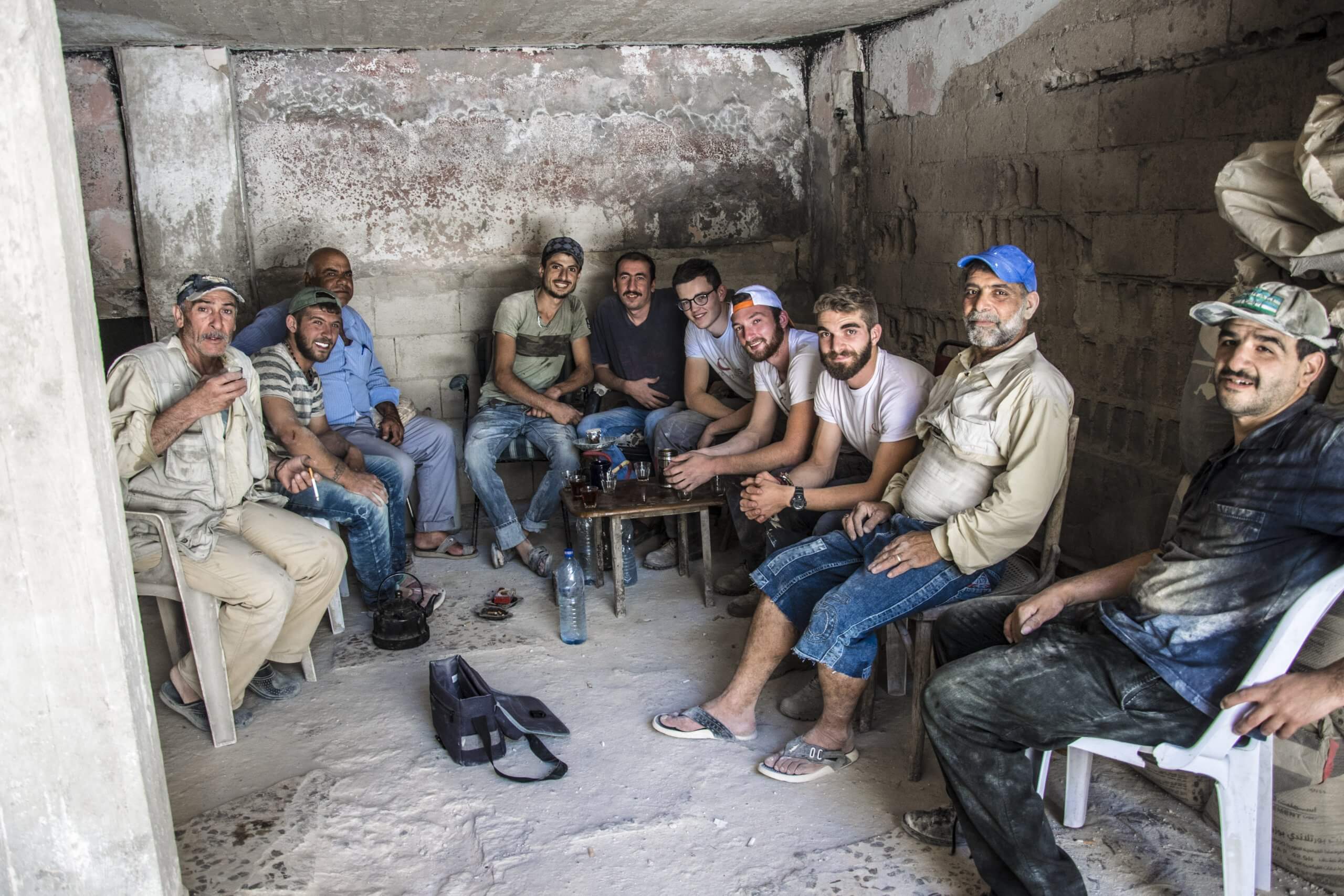
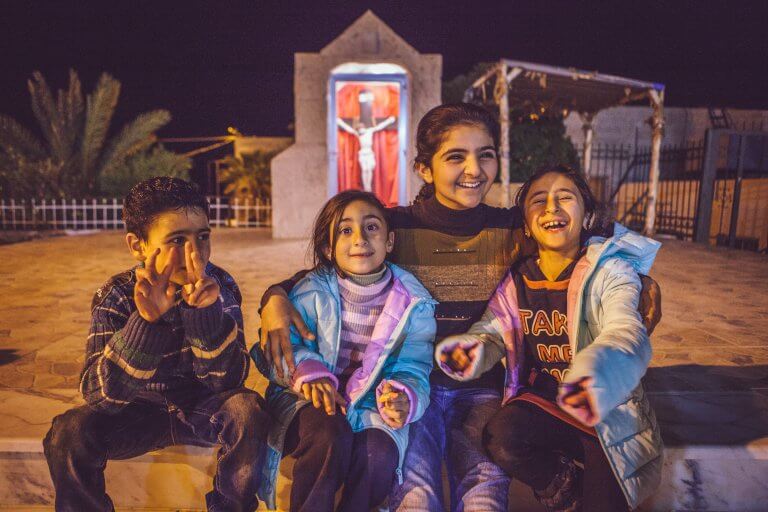
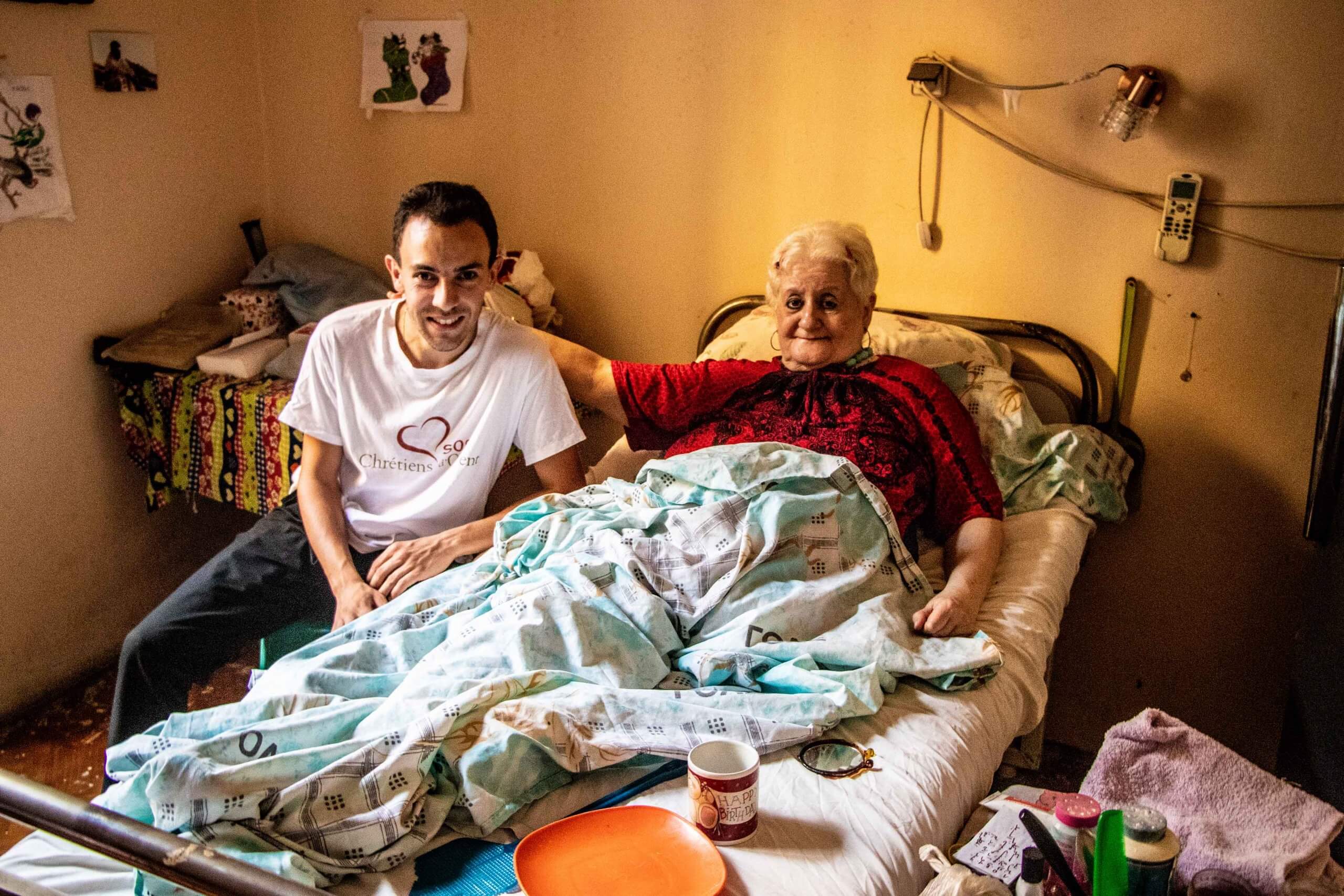
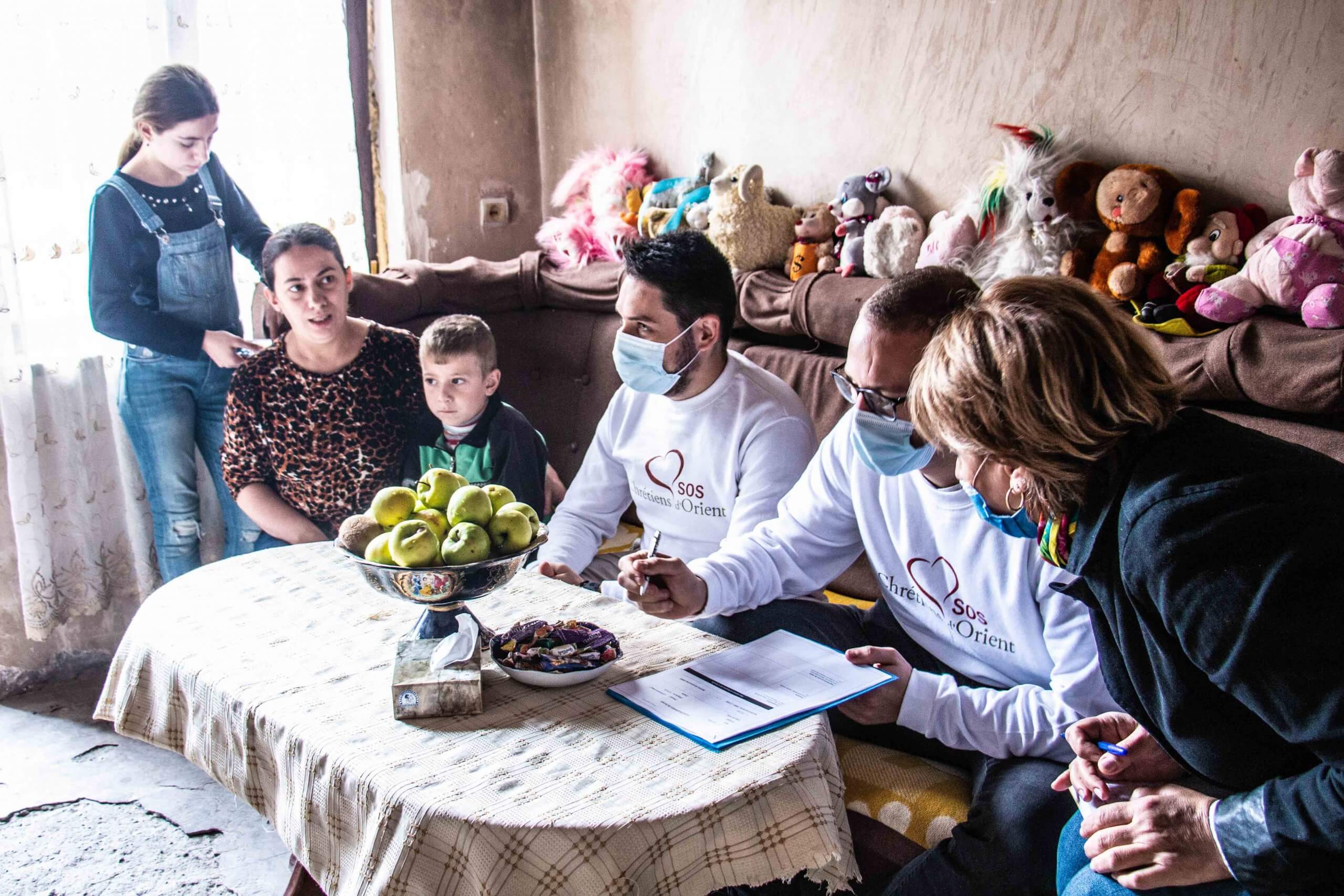
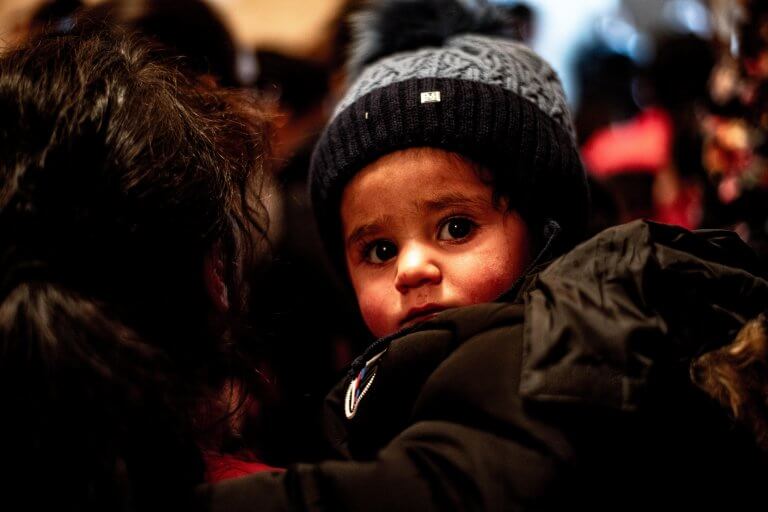
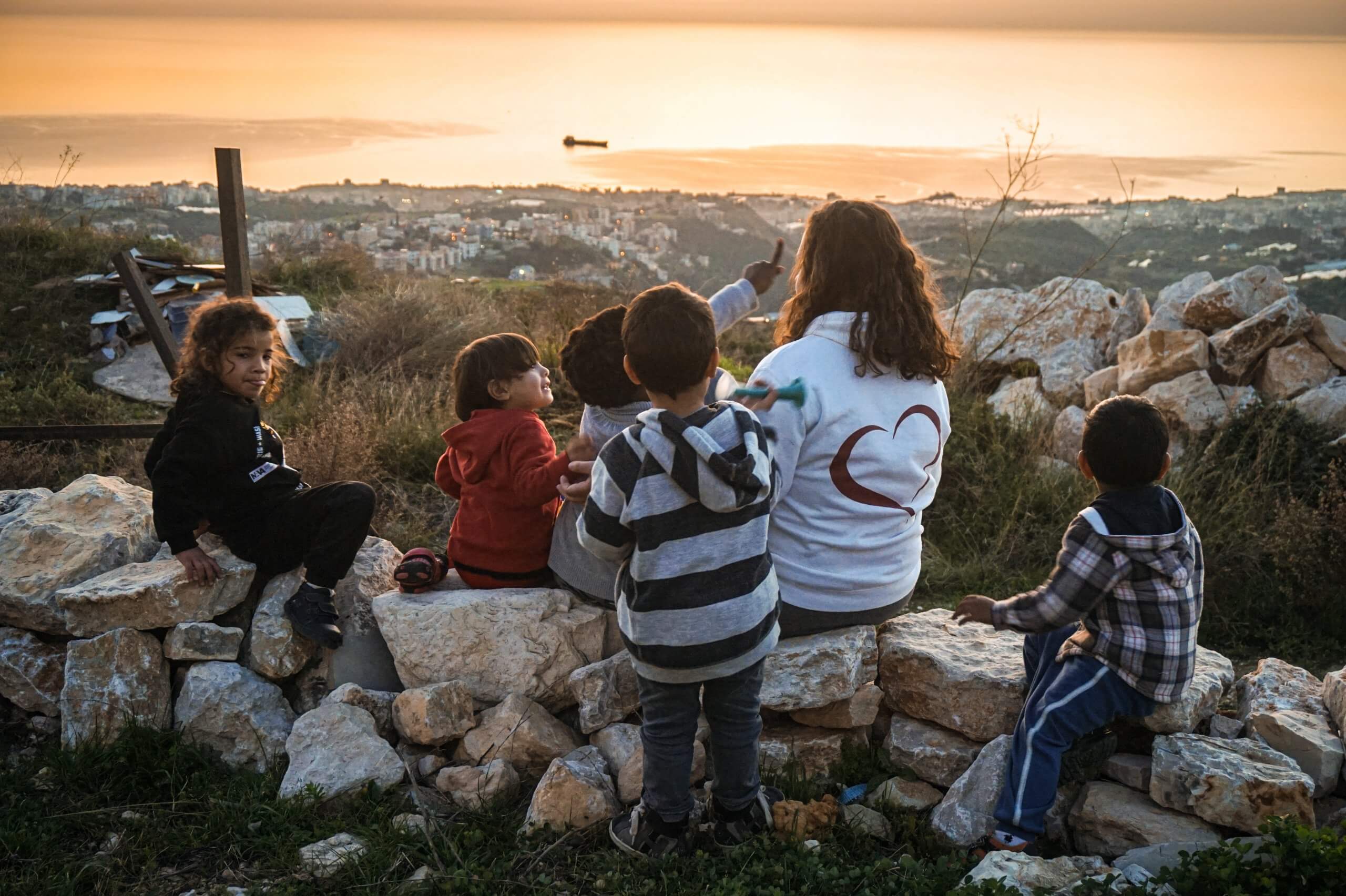
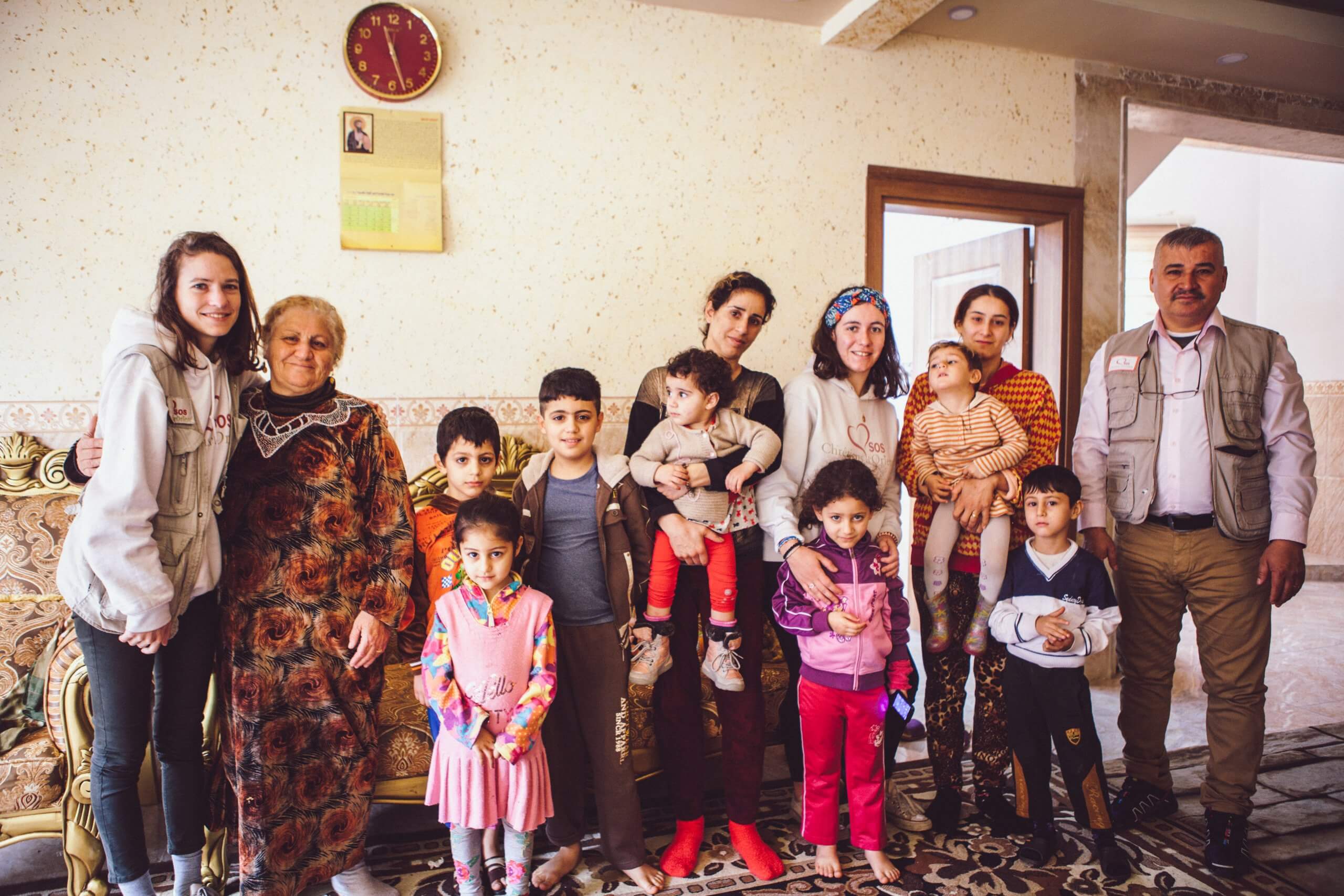
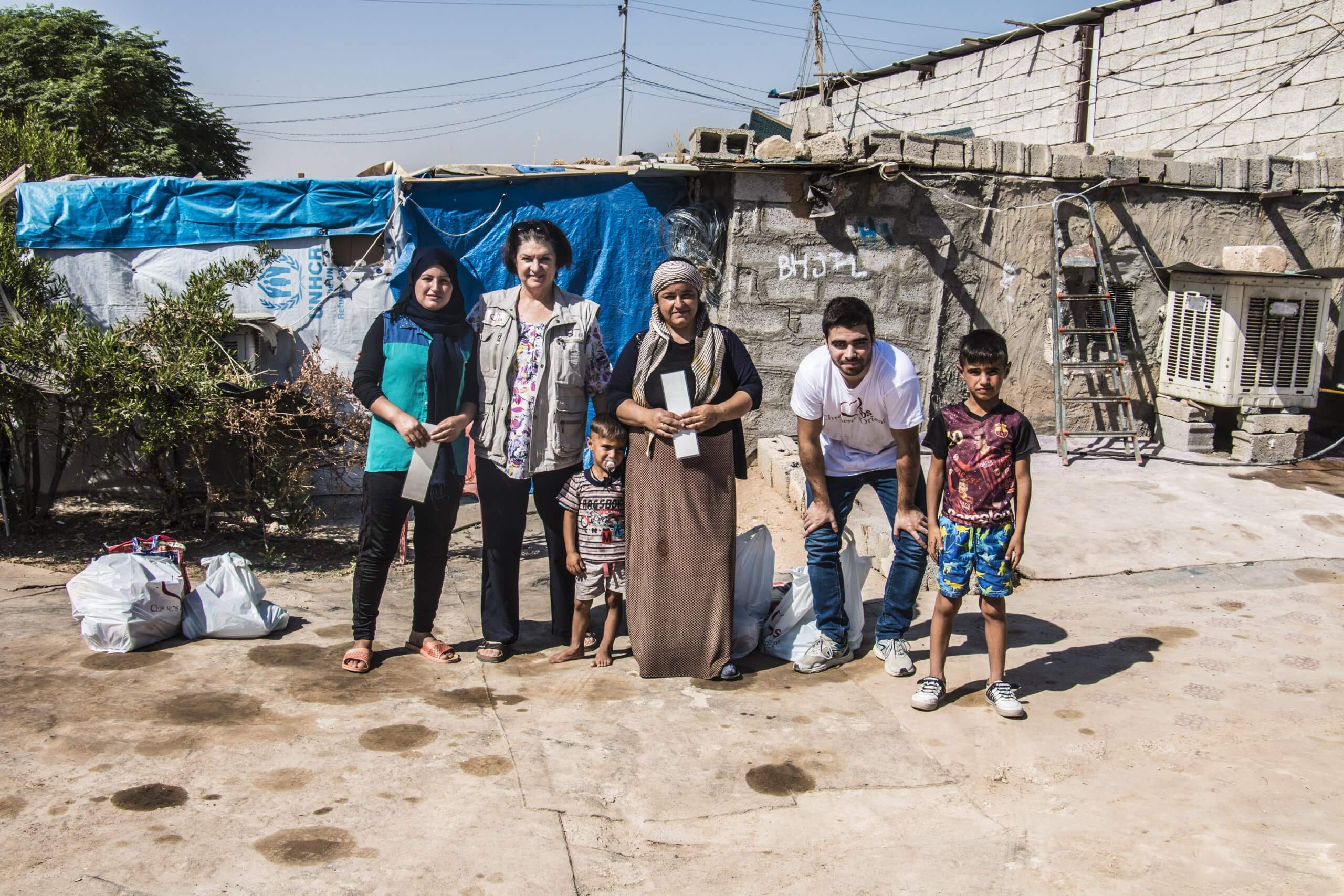
Whether you are on leave, on sabbatical or retired, you can go at any time of the year. You don’t need to know how to speak Arabic, or how to cook maklouba, or how to put on a keffiyeh, only your motivation counts. Don’t look for excuses!
When you leave France for the Middle East, 90% of the work is done. “The hardest thing is to leave and to accept to abandon yourself. You have to trust. If you want to go on a mission, it’s because you’ve received a call, you have to answer it.” Marie, volunteer in Iraq.
Go and do it! Abandon yourself and shine! You will come back changed and strong from having confronted another reality and culture. Don’t let your fears hold you back from an extraordinary experience.
“I came back with so much more than I came for. I wasn’t looking for friends, I found a family; I wanted to put a stone in my life, I built a wall; I wanted to remember it, and it’s stuck with me. And why? Because four months is a short time and in the intensity of this mission, everything is lived to the full, it’s a maxim from which we don’t deviate. ” Adrien, volunteer in Iraq.
All year round, SOS Chrétiens d’Orient recruits volunteers for minimum one-month missions in Lebanon, Syria, Egypt, Armenia and Iraq. If the association welcomes you with open arms whatever the duration of your mission, you should know that the longer it is, the more you will learn and really benefit from this unique experience.